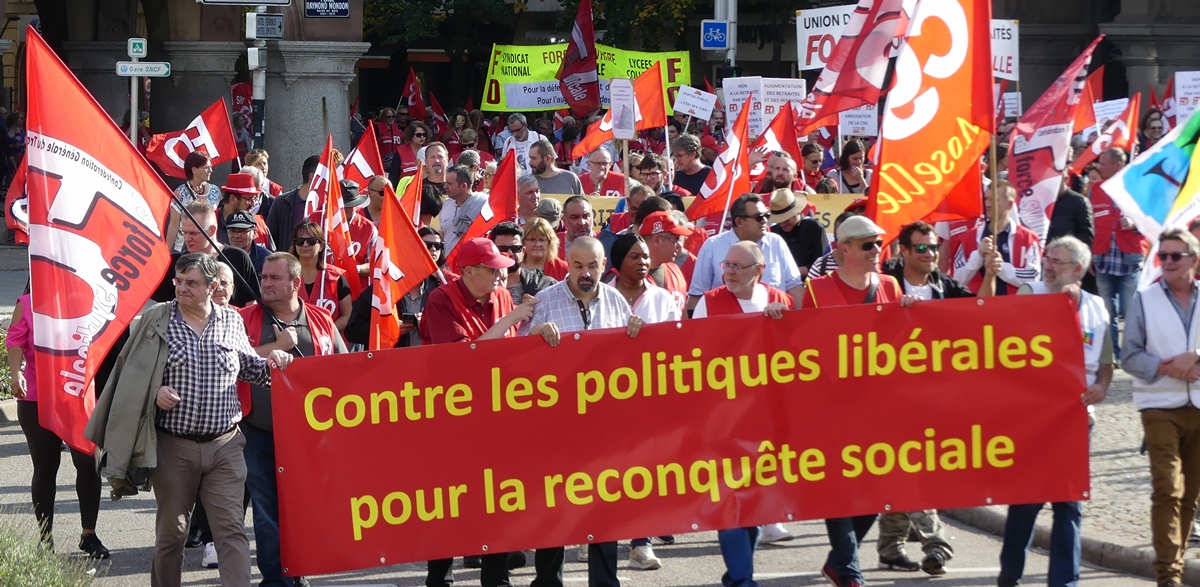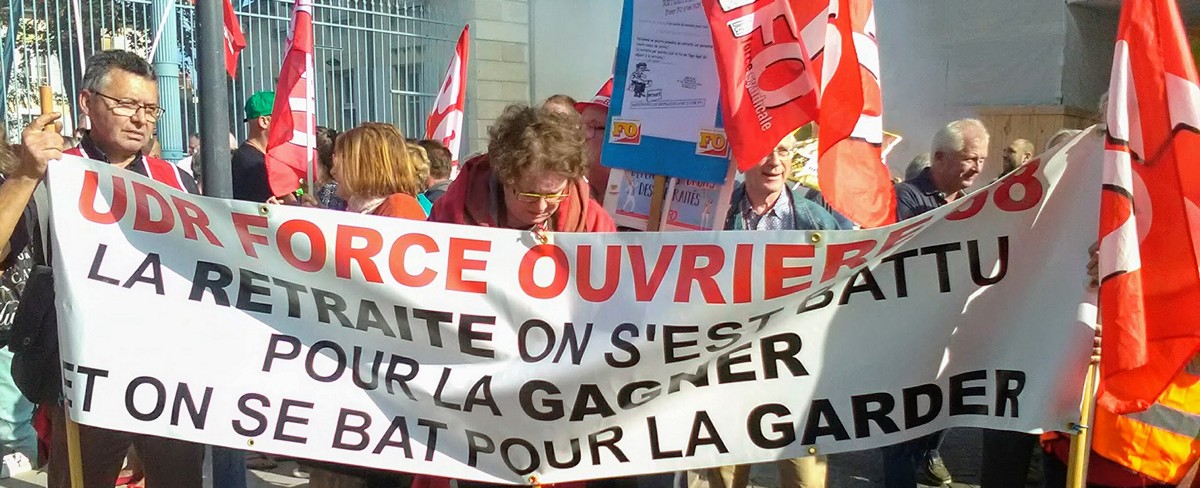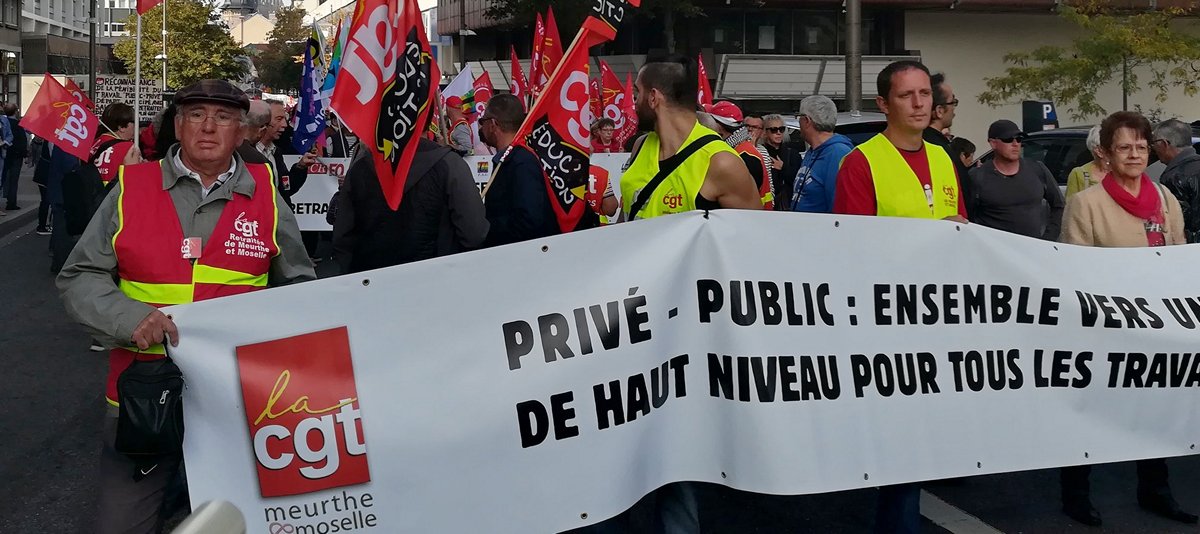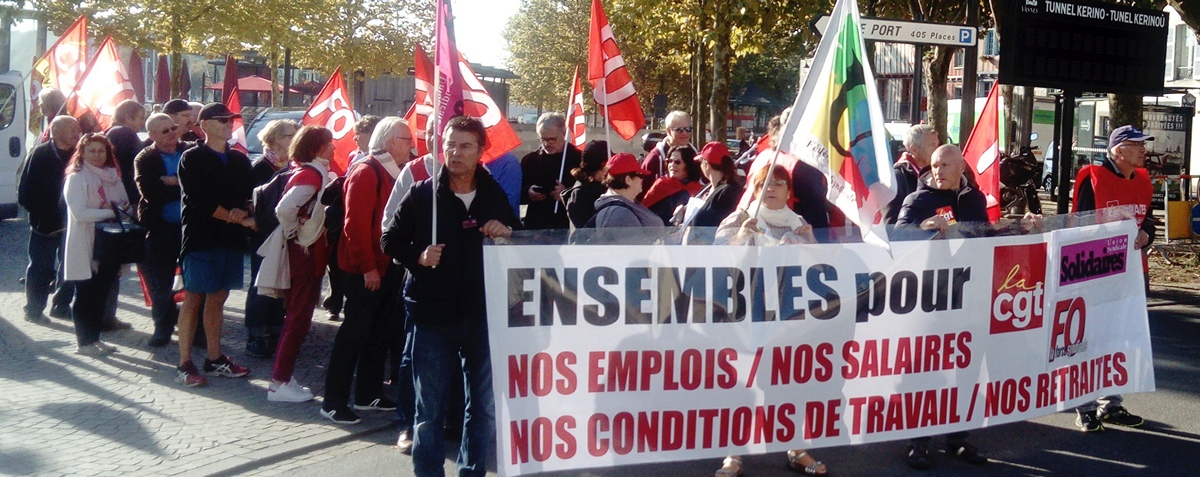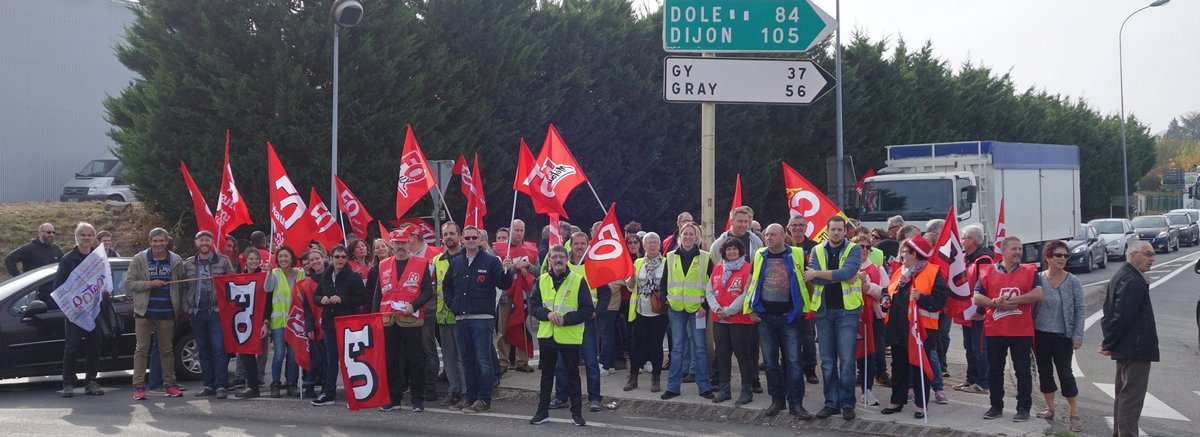|
October 27, 2018 - No. 37
Urgent Need to
Humanize
the Social and Natural Environment
The LNG Canada
Project and
the Natural
Environment
- K.C. Adams -
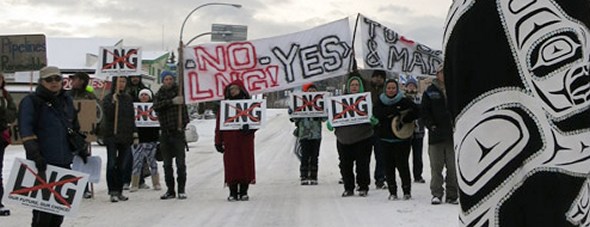
Gitxsan protest in 2014 against approval of LNG projects on their
territories.
Renewed
Anti-Social Offensive in Ontario
• Government Action Plan Driven by Self-Serving
Private Interests
• Ontarians Demand Increased Funding
for Public Health Care
For Your
Information
• Bill 47 -- Making
Ontario
Open
for
Business
Act,
2018
Working People Step Up
Opposition to
Anti-Social Offensive in Europe
Germany
• Mass
Demonstration Opposes Attempts to Sow Racist Divisions
France
• Mass Protests Denounce Neo-Liberal
Social and Labour Reforms
2018 Global Peace
Forum
on Korea
• Important Event Advances Peace on
the Korean Peninsula
All
Out
to
Defend Revolutionary Cuba!
• UN General Assembly to Vote Once
Again to End
U.S. Blockade of Cuba
• Militant Support for Revolutionary
Cuba
Expressed in New York City
• Despicable U.S. Provocations Fail Miserably
in Attempt to Isolate Cuba
• Effect of Blockade on
Sports
- Alfonso Nacianceno, Granma -
Centenary
of
End
of
World
War
I
• British Imperialism and the First
World War
• Women's Historic Contribution
Against the War
Supplement
73rd Session of UN General Assembly
• Principles of Sovereignty and Peaceful
Resolution
of Disputes Still the Order of the Day
Urgent Need to Humanize the Social and
Natural
Environment
The LNG Canada Project and the
Natural Environment
- K.C. Adams -
 The LNG Canada project is a
matter of concern to working
people in Canada. It brings to the fore the need to humanize the
social and natural environment and raises serious questions about
the exploitation of Canada's natural resources: Whose resources?
Whose economy? Who decides? Who controls the process? Who
benefits? The answer is not the working people in Canada. This is
clear from the Canadian government's backing and funding of
projects such as this, the Trans Mountain Expansion and others.
They act regardless of the people's objections, notably those of
the Indigenous nations, whose right to be consulted and give
their consent in these matters is usually trampled on. In the
case of fracking in BC, the matter is of profound concern to all
BC residents in an earthquake prone zone. This situation
underscores the urgent need to humanize the social and natural
environment. Working people should reject this humiliation and
victimization by governments that serve supranational interests,
at the expense of the people and the natural environment.
Providing information on these matters and what is at stake so
that people can draw warranted conclusions is very important at
this time when matters are rapidly spiralling out of anyone's
control. The LNG Canada project is a
matter of concern to working
people in Canada. It brings to the fore the need to humanize the
social and natural environment and raises serious questions about
the exploitation of Canada's natural resources: Whose resources?
Whose economy? Who decides? Who controls the process? Who
benefits? The answer is not the working people in Canada. This is
clear from the Canadian government's backing and funding of
projects such as this, the Trans Mountain Expansion and others.
They act regardless of the people's objections, notably those of
the Indigenous nations, whose right to be consulted and give
their consent in these matters is usually trampled on. In the
case of fracking in BC, the matter is of profound concern to all
BC residents in an earthquake prone zone. This situation
underscores the urgent need to humanize the social and natural
environment. Working people should reject this humiliation and
victimization by governments that serve supranational interests,
at the expense of the people and the natural environment.
Providing information on these matters and what is at stake so
that people can draw warranted conclusions is very important at
this time when matters are rapidly spiralling out of anyone's
control.
For Your Information
The $40 billion LNG Canada project has the approval of
the
National Energy Board, Department of Fisheries and Oceans, BC
Hydro, the BC and Canadian governments and is also said to be
approved by the elected governing bodies of 25 Indigenous peoples
whose territories are affected. Several Wet'suwet'en Hereditary
Chiefs oppose the project. Debbie Pierre, executive director of
the Office of the Wet'suwet'en said, "The Wet'suwet'en Hereditary
Chiefs do not endorse nor support pipeline projects that threaten
the health and well-being of our lands and our people."
The LNG export project encompasses hydraulic fracturing
of
the Montney Formation in Northeastern BC to extract natural gas.
The gas will be transported 670 kilometres through a pipeline to
a terminal and plant on the west coast at Kitimat BC. The plant
will liquefy the gas for shipping to overseas markets.
The National Energy Board and other agencies say the
Montney
Formation alone, which stretches from BC into Alberta, holds 449
trillion cubic feet of usable natural gas, 14,521 million barrels
of useable natural gas liquids (NGLs) and 1.125 billion barrels
of oil. The cumulative estimated gas resource is equivalent to
145 years of Canada's 2012 total consumption.
Hydraulic Fracturing

Schematic
depiction of hydraulic fracturing for shale gas. (Wikipedia)
The oil and gas of the Montney Formation is found in a
shale
basin below impermeable formations. Hydraulic fracturing is the
current method employed to extract the gas. Wikipedia describes
hydraulic fracturing as, "a well stimulation technique in which
rock is fractured by a pressurized liquid. The process involves
the high-pressure injection of 'fracking fluid' (primarily water,
containing sand or other proppants suspended with the aid of
thickening agents) into a wellbore to create cracks in the
deep-rock formations through which natural gas, petroleum, and
brine will flow more freely. When the hydraulic pressure is
removed from the well, small grains of hydraulic fracturing
proppants (either sand or aluminium oxide) hold the fractures
open."
The imperialist economic system puts the making of
maximum
private profit as the aim and main purpose of production.
Advances in production technique must serve the aim and purpose
of imperialism, and the military protection of the system and the
security and position of privilege of the social class in
control. Instead of devising pro-social aims for the use of
advanced production techniques, their consequences and effects on
human health, the people's well-being, and the natural
environment when they are used to pay the rich are not a
consideration of imperialism.
Generally the consequences or effects on human health,
the
people's well-being and the natural environment of employing
advanced scientific technique only become known in hindsight
after considerable use and growing resistance of the people.
However, even after the effects become widely known, the
imperialists will only take measures to correct the situation, if
at all, under pressure from a mass political mobilization of the
people. If the advanced scientific technique continues to serve
the making of maximum private profit and the competition with
other imperialists or offers a military advantage such as nuclear
weapons, no amount of opposition will deter the imperialists from
using the particular advanced technique short of depriving them
of the power to do so.
Hydraulic fracturing (fracking) has been used
commercially
since 1950. Two-and-a-half million fractured wells had been
drilled up to 2012 and thousands more from that time, especially
in the U.S. and Canada. Resistance to fracking and a burgeoning
body of scientific knowledge of the consequences and effects of
hydraulic fracturing now exist.[1]
Not only are the effects on the immediate
surrounding areas where fracking occurs known but so is the wider
issue of climate change and the danger this poses to humanity and
Mother Earth. (See the UN press release and report on climate
change[2])
Resistance
to
the
unbridled
self-serving
use of advanced production techniques
to extract and market oil and natural gas has developed despite
determined opposition from the imperialists who have done
everything to stop or divert discussion on the issue.
LNG Canada and Climate Change
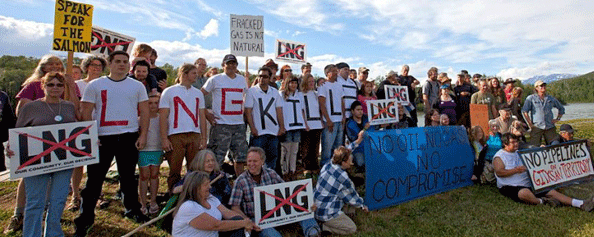
Residents of Kispiox valley in June 2014 declare they will stand with
the Gitxsan people against any LNG projects in the valley citing in
particular their concerns for the
environment.
Residents of Kispiox valley in June 2014 declare they
will
stand with the Gitxsan people against any LNG projects in the
valley citing in particular their concerns for the
environment.
Natural gas cooled to -162 degrees Celsius turns into a
liquid or liquefied natural gas (LNG). The liquid is measured by
weight not the space it occupies when in a gas form. LNG Canada
will ship about 14 million tonnes of LNG per year in the initial
stage and aims to increase that amount.
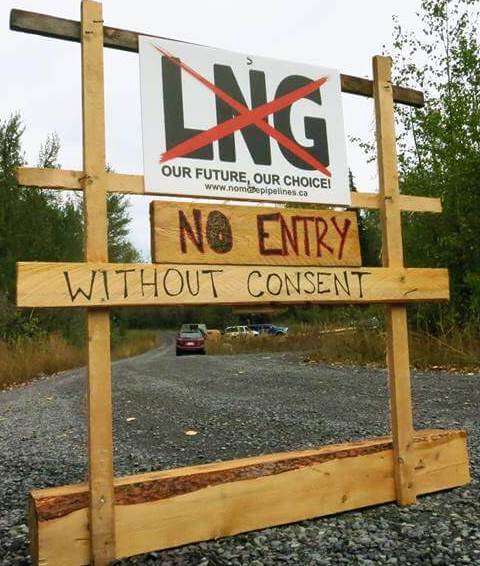 The NDP and Green Party's
Confidence and Supply Agreement,
which allowed the Horgan-led NDP to seize governmental power from
the Liberal Party in BC, pledges to draft a climate plan to
reduce greenhouse gases (GHGs) by 40 per cent by 2030 and 80 per
cent by 2050. GHGs are defined as: "Any of various gaseous
compounds (such as carbon dioxide or methane) that absorb
infrared radiation, trap heat in the atmosphere, and contribute
to the greenhouse effect."[3]
The leader of the BC Green Party, Andrew Weaver
believes the pledge to reduce GHGs has become impossible with the
approval of the LNG Canada project. The NDP and Green Party's
Confidence and Supply Agreement,
which allowed the Horgan-led NDP to seize governmental power from
the Liberal Party in BC, pledges to draft a climate plan to
reduce greenhouse gases (GHGs) by 40 per cent by 2030 and 80 per
cent by 2050. GHGs are defined as: "Any of various gaseous
compounds (such as carbon dioxide or methane) that absorb
infrared radiation, trap heat in the atmosphere, and contribute
to the greenhouse effect."[3]
The leader of the BC Green Party, Andrew Weaver
believes the pledge to reduce GHGs has become impossible with the
approval of the LNG Canada project.
Tom Green with the David Suzuki Foundation warns that
with
the accelerated fracking necessary to supply LNG Canada with
enough natural gas, increased methane leakage into the atmosphere
is inevitable under current methods. This means the province will
miss its target to reduce emissions of methane by 45 per cent by
2025.
Karen Tam Wu, BC managing director for the Pembina
Institute
is quoted by Global News as saying, "The task of reducing BC's
carbon pollution must not be underestimated ... In addition to
the climate considerations, scientific research has not fully
caught up on the many impacts of unconventional gas development.
Recent research demonstrates evidence of risks posed by hydraulic
fracturing to our water resources and public health. In the
absence of further investigation, we should be cautious about
putting our communities at risk."
The BC government briefing paper says the Kitimat
conversion
plant and terminal alone will emit one tonne of greenhouse gases
for every ten tonnes of LNG transformed from gas. When in
operation LNG Canada is projected to add up to 3.45 megatonnes
(3,450,000 metric tons or 3.45 billion kilograms) of carbon
emissions or GHGs into the atmosphere each year. In comparison,
BC's entire oil and natural gas industry produced 4.28 megatonnes
in 2015. Using those figures, the David Suzuki Foundation says
LNG Canada will increase the province's annual overall greenhouse
gas emissions by more than five per cent.
The LNG project's emissions when operational will
represent
more than one-quarter of BC's legislated targets for carbon
pollution in 2050, set at about 13 megatonnes a year. Once the
tally of 3.45 million tonnes of emissions is added to the
existing emissions, the gap to be closed by 2030 according to the
BC government's own estimate will grow to 23.9 million
tonnes.
To placate its Green Party partner, the government
promised a
revised climate action plan for later in the fall. In keeping
with its line that "even with approval of this project we are
doing more to reduce climate change than others," the government
argues that the emissions at the Kitimat terminal are acceptable
given the fact they are ten times less than at the LNG export
terminal at Sabine Pass in Louisiana, which went on line just two
years ago and is said to produce about one tonne of GHG for every
tonne of LNG.
The BC government employs an infantile or some would
say
opportunist (pragmatic) argument to approve a project that for
all intents and purposes contradicts its Confidence and Supply
Agreement with the Green Party. A government briefing paper
reads, "BC can choose to supply low GHG-intensive gas, helping to
reduce the world's carbon footprint. Or we can leave this demand
to be supplied with higher GHG-intensive gas from other parts of
the world."
If we don't sell LNG to the world, others will do it
but in
even worse ways, is one rationale of the government for approving
the LNG Canada project. At a press conference announcing the
project, an ebullient Premier Horgan said, "Today LNG Canada has
sent a signal to the world that British Columbia and Canada are
open for business." The slogan "open for business" has become a
neo-liberal moniker in most imperialist jurisdictions synonymous
with allowing the oligopolies to do whatever serves their private
interests replete with lavish pay-the-rich schemes from the
public purse.
 To address the problem that with the 3.45
million tonnes of
GHG emissions when the LNG project is fully operational, the gap
to be closed by 2030 to meet the current BC government plan will
grow to 23.9 million tonnes, the government now says that when
the new Site C dam and its related hydroelectric power project
"goes on line in 2024, it will provide clean power for some of
the electrification in the clean growth strategy." In plain
English, Site C will offset the increased GHG emissions from the
extraction and sale of large quantities of natural gas. To address the problem that with the 3.45
million tonnes of
GHG emissions when the LNG project is fully operational, the gap
to be closed by 2030 to meet the current BC government plan will
grow to 23.9 million tonnes, the government now says that when
the new Site C dam and its related hydroelectric power project
"goes on line in 2024, it will provide clean power for some of
the electrification in the clean growth strategy." In plain
English, Site C will offset the increased GHG emissions from the
extraction and sale of large quantities of natural gas.
The state support for LNG Canada is not merely approval
but
material. BC provincial subsidies are reported to total $5.35
billion. An LNG Canada official representing the five companies
within the cartel behind the project said that without BC and
federal material support the project would not have been
"competitive or viable." Federal money and support for the
project from an array of agencies and programs has not yet been
tabulated.
According to a June report from a coalition of NGOs,
"Canada
provides more government support for oil and gas companies than
any other G7 nation and is among the least transparent about
fossil fuel subsidies ... Federal subsidies include the Canadian
Development Expense, the Canadian Exploration Expense and the
Accelerated Capital Cost Allowance for Liquefied Natural Gas
assets ... Export Development Canada, a crown corporation,
provides financing to fossil fuel companies, including more than
$10 billion in 2017. The fossil fuel industry also has access to
additional federal tax provisions and policies. Provincial
programs include Crown Royalty Reductions in Alberta and the Deep
Drilling Credit in British Columbia. Most of these subsidies were
put into place decades ago and fail to take into account the
costs of climate change to human health, communities and the
economy ... Canada remains the largest G7 provider of support for
oil and gas production per unit of GDP ... G7 governments provide
at least US$100 billion a year to support the production and
consumption of oil, gas and coal, despite repeated pledges to end
fossil fuel subsidies by 2025."[4]
According to the government about 60 per cent of the
gas for
the LNG Canada facility will come from new fracking. Presumably,
the rest will come from old fracking. Fracking for gas in BC's
northeast involves a process that uses a proprietary mix of
chemicals and massive amounts of water. Fracking's need for fresh
water has so far resulted in the construction of at least 92
unlicensed dams in northeast BC.[5]
LNG Canada has contracted TransCanada Corporation to
build
and operate a new Coastal GasLink pipeline 670 kilometres to a
plant and terminal in Kitimat BC on the West Coast. At the new
plant in Kitimat, LNG Canada says it will burn its own natural
gas for the energy-intensive cooling and compression process to
turn the gas into liquid.
On October 8, the United Nations Intergovernmental
Panel on
Climate Change (IPCC) released a "special report on the impacts
of global warming of 1.5 °C above pre-industrial levels and
related global greenhouse gas emission pathways, in the context
of strengthening the global response to the threat of climate
change, sustainable development, and efforts to eradicate
poverty." (See Note 1 below to read the report.)
Notes
1. Wikipedia writes,
"Hydraulic
fracturing has the potential to cause fugitive methane emissions,
air pollution, water contamination, and noise pollution. Water
and air pollution are the biggest risks to human health from
hydraulic fracturing. Hydraulic fracturing fluids include
proppants and other substances, which may include toxic
chemicals. In the United States, such additives may be treated as
trade secrets by companies who use them. Lack of knowledge about
specific chemicals has complicated efforts to develop risk
management policies and to study health effects. Surface water
may be contaminated through spillage and improperly built and
maintained waste pits, in jurisdictions where these are
permitted. Further, ground water can be contaminated if fluid is
able to escape during fracking ... There is potential for methane
to leak into ground water and the air ... Hydraulic fracturing
causes induced seismicity called microseismic events or
microearthquakes [and has been identified as] responsible for
earthquakes up to 5.6M in Oklahoma and other
states."
2. The press release, summary and
complete report of the United Nations Intergovernmental Panel on
Climate Change released October 8, 2018 are available here.
3. Definition from Merriam-Webster
Dictionary.
Wikipedia notes: "A greenhouse gas is a gas in
an
atmosphere that absorbs and emits radiation within the thermal
infrared range. This process is the fundamental cause of the
greenhouse effect. The primary greenhouse gases in the Earth's
atmosphere are water vapour, carbon dioxide, methane, nitrous
oxide, and ozone. Without greenhouse gases, the average
temperature of Earth's surface would be about -18°C, rather than
the present average of 15°C. At current emission rates (from
human activity) temperatures could increase by 2°C, which the
United Nations' IPCC (Intergovernmental Panel on Climate Change)
designated as the upper limit to avoid 'dangerous' levels, by 2036.
(The IPCC has now revised downward the
2°C upper limit 1.5°C.)
"Human activities since the beginning of the Industrial
Revolution (around 1750) have produced a 40% increase in the
atmospheric concentration of carbon dioxide (CO2), from 280 ppm in 1750
to 406 ppm in early 2017. This
increase has occurred despite the uptake of more than half of the
emissions by various natural 'sinks' involved in the carbon
cycle. The vast majority of anthropogenic carbon dioxide
emissions (i.e., emissions produced by human activities) come
from combustion of fossil fuels, principally coal, oil, and
natural gas, with additional contributions coming from
deforestation, changes in land use, soil erosion and agriculture
(including livestock)."
4.The report is from the
International
Institute for Sustainable Development, Natural Resources Defense
Council, the Overseas Development Institute and Oil Change
International with comments from The
Narwhal.
5.
Fully documented by the Canadian
Centre for Policy
Alternatives here.

Renewed Anti-Social Offensive in Ontario
Government Action Plan Driven by
Self-Serving Private Interests
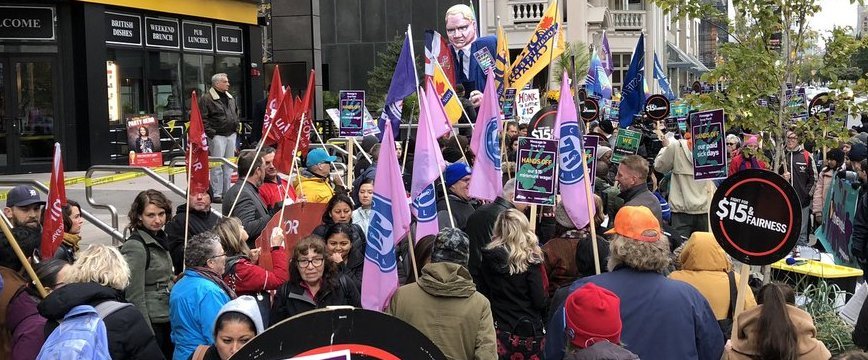
Emergency rally outside the Ministry of Labour in Toronto, October 24,
2018, the day following introduction of Bill 47.
Presenting as the rationale that "the government is
acting to bring
jobs and investment back to our province," the Ontario PC
government introduced Bill 47 in the Legislature on October 23.
Entitled the Making Ontario Open for Business Act, the
legislation is driven by the self-serving outlook of the rich
that the impediment to economic growth and prosperity are the
claims of the workers on the wealth they themselves produce.
Bill 47 is legislation that serves private interests
not the
public good. It completely disregards the economic impact of
integration into the U.S. economy, the most recent scientific and
technological developments, and globalization and its
supranational agreements that carve up economies amongst the
global monopolies for their own benefit. Instead of dealing with
the reality of the economy as it presents itself, the legislation
turns the world upside down and blames the workers who diligently
produce the social wealth for problems over which they have no
control or responsibility.
Specifically directed at making life more difficult for
the
working class and making them pay for economic problems, Bill 47
attacks:
a) Ontario's most vulnerable workers;
b) the legal right of
workers to organize into unions to defend their rights; and
c)
apprenticeship standards in the construction industry, virtually
the only sector of the Ontario economy to show any real growth in
employment income from 2005-2015.
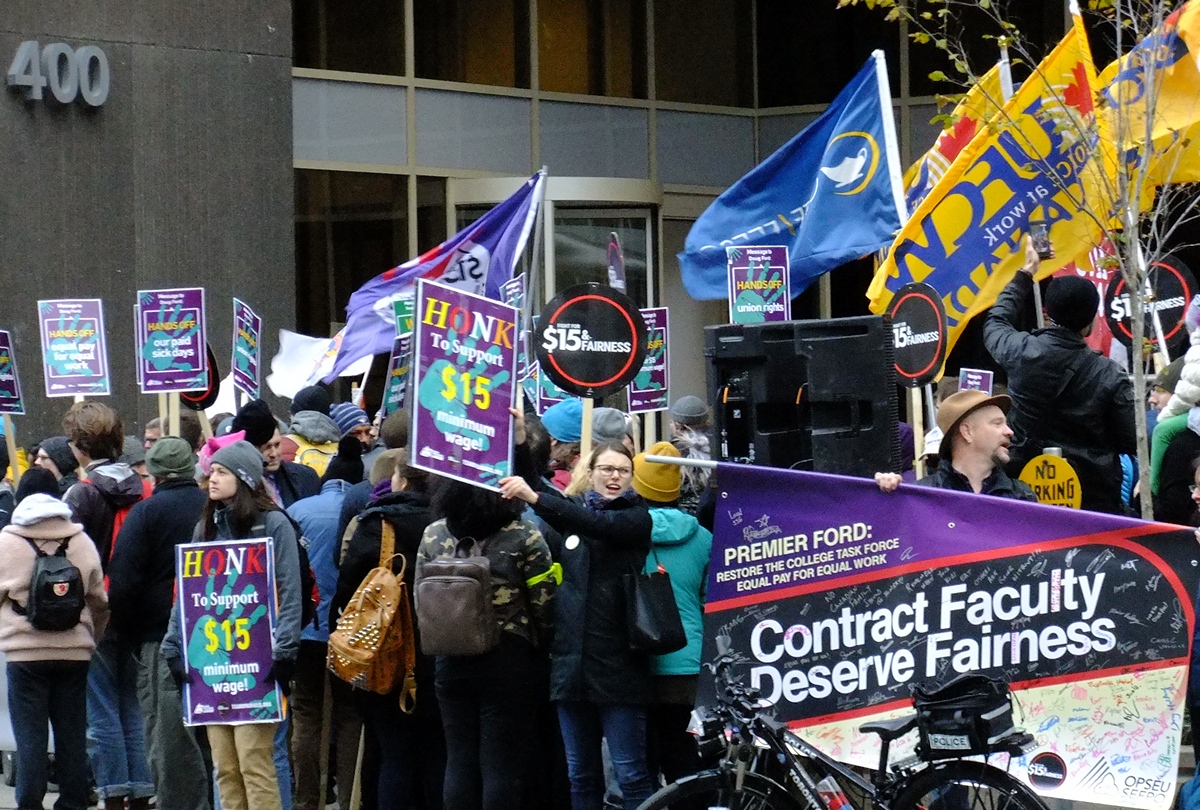 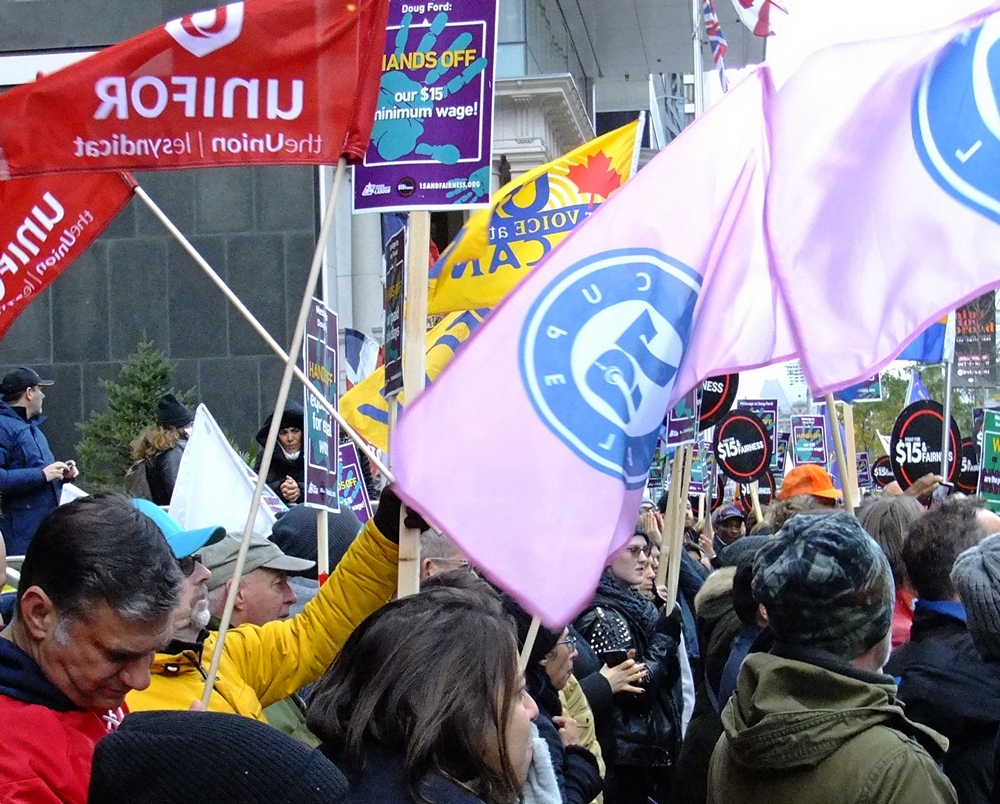  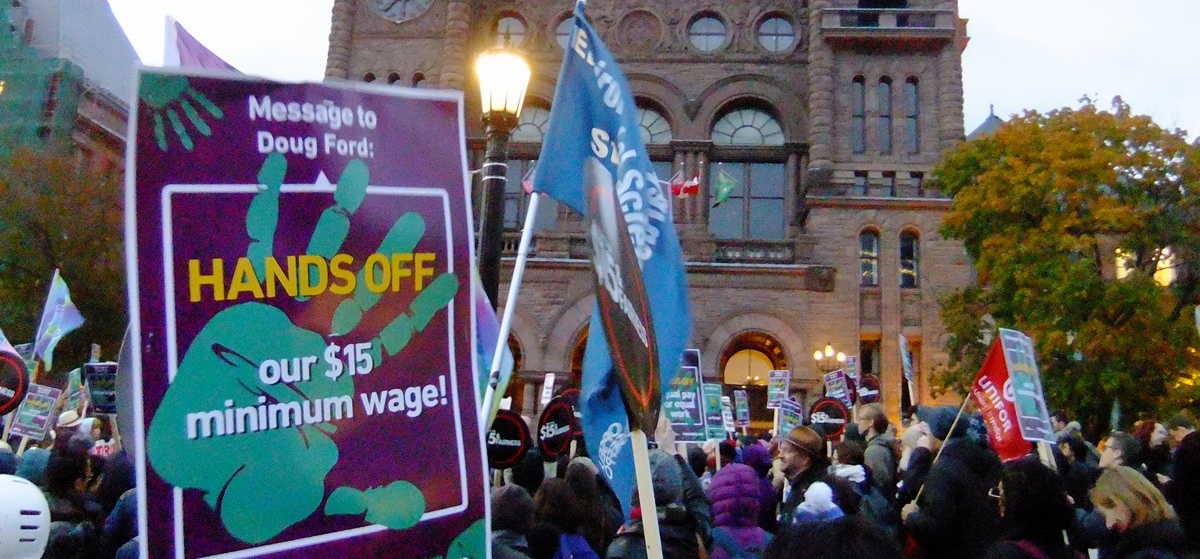
Following the October 24 Toronto rally against Bill 47 participants
marched
to Queen's Park.
The bill rolls back and freezes the minimum wage law at
$14
an hour and denies any real increase for those already working
and living in poverty. Not until 2020 will the minimum wage be
adjusted for inflation.
The legislation repeals equal pay provisions for
part-time,
casual, temporary and temporary work agency status workers.
It guts the 2017 revisions to Ontario Labour Standards
included in the previous government's Bill 148. This will make
union organizing more difficult. For example, it repeals
card-based certification in various sectors and the right of
unions to employee lists during unionizing campaigns. It empowers
employers to refuse to reinstate employees returning after a
strike or lock-out lasting six months or more.

Despite one in five new jobs in Ontario being
trades-related
positions, the legislation does away with the Ontario College of
Trades, and replaces it in early 2019 with a new model for regulation
of skilled
trades and apprenticeships. The government says it
wants to remove the barriers employers are facing in increasing
the numbers of skilled building trades workers.
The ruling elite refuse to face the problems that
emerge from
the economic system itself where wealth and power have become
concentrated in the hands of fewer and fewer global oligarchs.
Those who control the economy have organized it to suit their
narrow private interests and couldn't care less for the problems
they create for the people. The global oligarchs are to blame for
the loss of more than 200,000 industrial jobs in Ontario since
2005. Only anti-worker rogues would suggest that a modest
increase in the minimum wage scheduled for 2019 or certain labour
standard amendments are responsible for such a disaster.
The legislation dares to blame equal pay for part-time,
casual and temporary workers who do the same work as full-time
employees for impeding investment from those who control the
social wealth workers have created. Could this be because the
rich oligarchs have concentrated their "job creation in Ontario"
on precarious and part-time work and want to keep those workers
captive in poverty and insecurity? Half the workforce (48 per
cent) is now captured within what is called "irregular" work which has,
in fact, become regular.
Full-time employment has declined by 7.3 per cent
compared
with 2005. This reality is reflected in employment income
decreasing between 2005 and 2015 in real terms: one per cent for
non-immigrants; 2.5 per cent for immigrants; 6.3 per cent decrease for
Filipinos; and a 9.6 per cent decline
for Blacks.
Working people denounce the measures in Bill 47 that
make it
more difficult to organize into unions. These and the other
anti-social measures cause real harm to the economy. Hundreds of
thousands of "good paying jobs," unionized jobs, have been wiped
out with the destruction of Ontario's manufacturing base. This
wrecking seriously harms the economy and the oligarchs in control
should be held to account and not be allowed to blame the
victims.
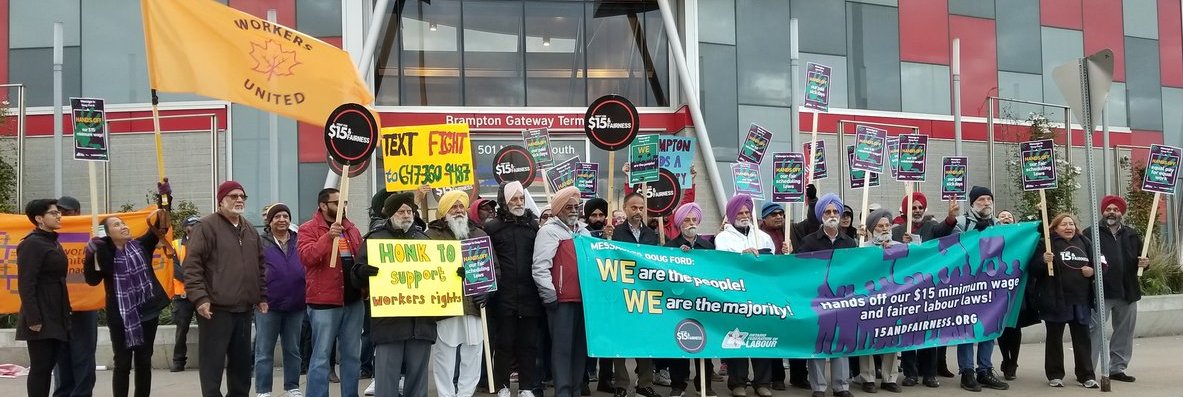
Brampton action against Bill 47, October 25, 2018.

Kingston picket against Bill 47, October 25, 2018.
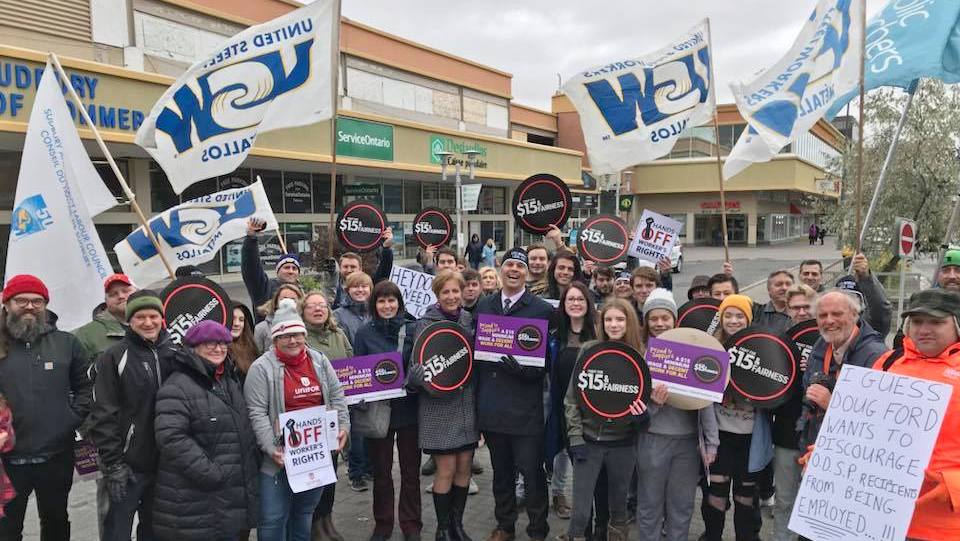
Sudbury action against Bill 47, October 26, 2018.

Newmarket picket against Bill 47, October 26, 2018.
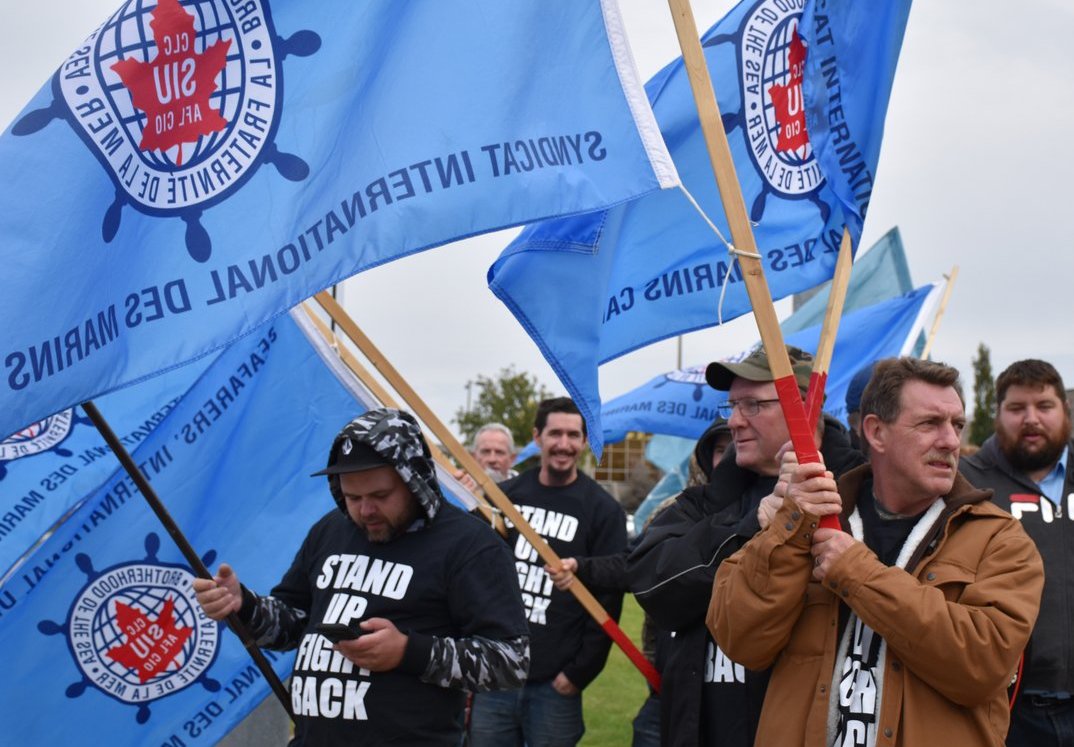 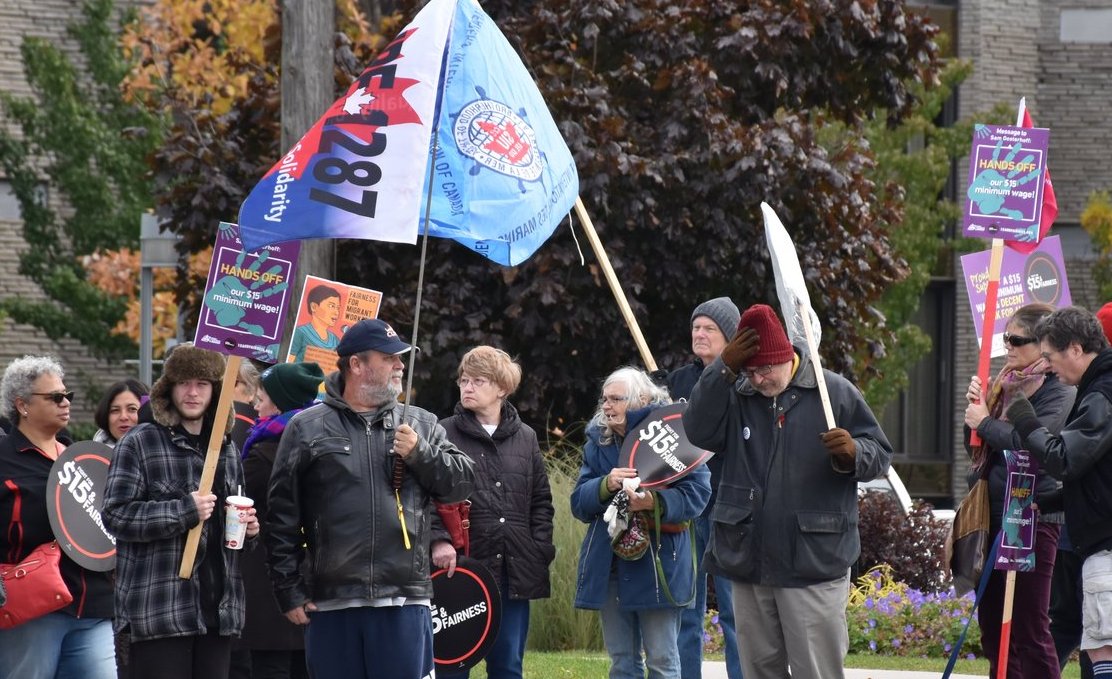
Brock University, St. Catharines, action against Bill 47, October 26,
2018.
A report by the Mowat Centre on the recent industrial
decline said, "In seven of Ontario's 16 census metropolitan areas
-- basically a series of mid-sized cities in southwest Ontario
and in a central arc surrounding the Greater Toronto Area [the
former industrial heartland -- TML Ed. Note] -- the
median employment income for men fell by over 10 per cent in real
terms. These include Windsor, where the drop was steepest at 25
per cent, as well as St. Catharine's-Niagara (13.9 per cent),
Oshawa (13.5 per cent), Peterborough (13.5 per cent), Hamilton
(10.8 per cent), London (10.8 per cent) and Barrie (10.7 per
cent)."
The substantial reduction of social wealth being
produced and
circulated within Ontario as a result of the decline in the
manufacturing sector is driving down the standard of living and
reducing economic activity generally.
Bill 47 also attacks workers in the one sector of the
economy
where employment income has been positive from 2005 to 2015. By
doing away with the Ontario College of Trades, the Ford
government intends to lower the trades classification and
apprenticeship standards and increase competition among workers
to drive down their wages.
Working people are fed up with the disinformation that
those
who produce the social wealth but have no control over its
distribution or the economy in general are to blame for its
problems. Many workers reject with contempt the rotten outlook of
the rich that the claims of those who do the work cause problems
in the economy. Workers are coming to realize that those who do
the work should be in control of what they produce and how that
social wealth should be distributed and reinvested in the economy
and society in ways that favour the people and not the
oligarchs.
Denounce Ford's Anti-Worker Bill 47!
Stop the Legislated Attacks on the
Working Class that
Criminalize
Its Claims on the Social Wealth It Produces and the
Right to Organize!
Stop Paying the Rich!
Increase Investments in Social
Programs and Public
Services!

Ontarians Demand Increased Funding
for Public Health Care
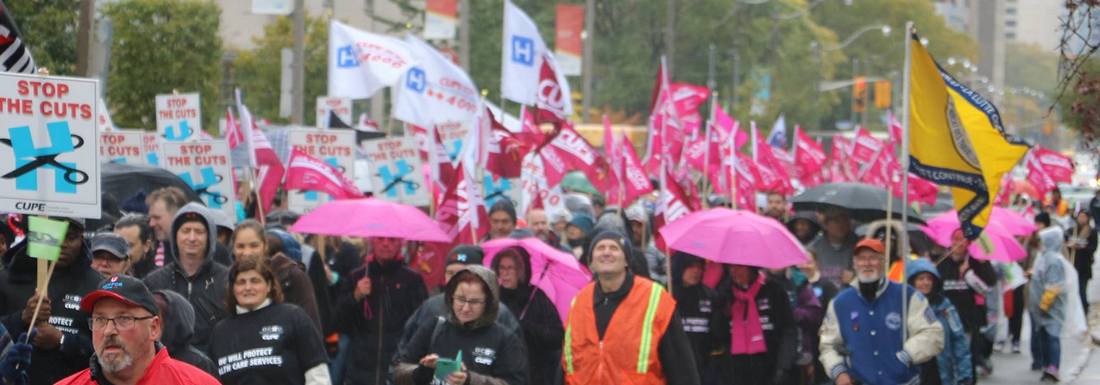
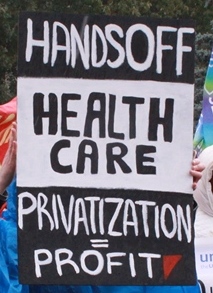 Thousands of people,
including many front line health
care workers, converged on Queen's Park on October 23, to speak
out militantly against any plans by the new Ford government to
further cut and privatize health care, on top of the neo-liberal
wrecking done by previous governments. Signs, banners and
speakers affirmed the need for a properly funded public health
care system, including proper wages and working conditions for
health care workers, and services that are easily accessible to
all Ontarians, regardless of where they live. Pointedly, the
rally coincided with the tabling of the anti-worker pay-the-rich
Bill 47, the Making Ontario Open for Business Act. Thousands of people,
including many front line health
care workers, converged on Queen's Park on October 23, to speak
out militantly against any plans by the new Ford government to
further cut and privatize health care, on top of the neo-liberal
wrecking done by previous governments. Signs, banners and
speakers affirmed the need for a properly funded public health
care system, including proper wages and working conditions for
health care workers, and services that are easily accessible to
all Ontarians, regardless of where they live. Pointedly, the
rally coincided with the tabling of the anti-worker pay-the-rich
Bill 47, the Making Ontario Open for Business Act.
The broad participation of people from across the
province
confirms that Ontarians are united in their defence of the public
health care system and their right to health care. The people are
not fooled by the Ford government's empty promises of making
billions of dollars of cuts to the public sector, that it calls
making "efficiencies," at no cost to the working people of
Ontario. The situation underscores the problem of a political
system that brings parties to power that do not represent the
people and their demands, and the necessity for working people to
voice their demands as an organized force that can bring them
into being.

 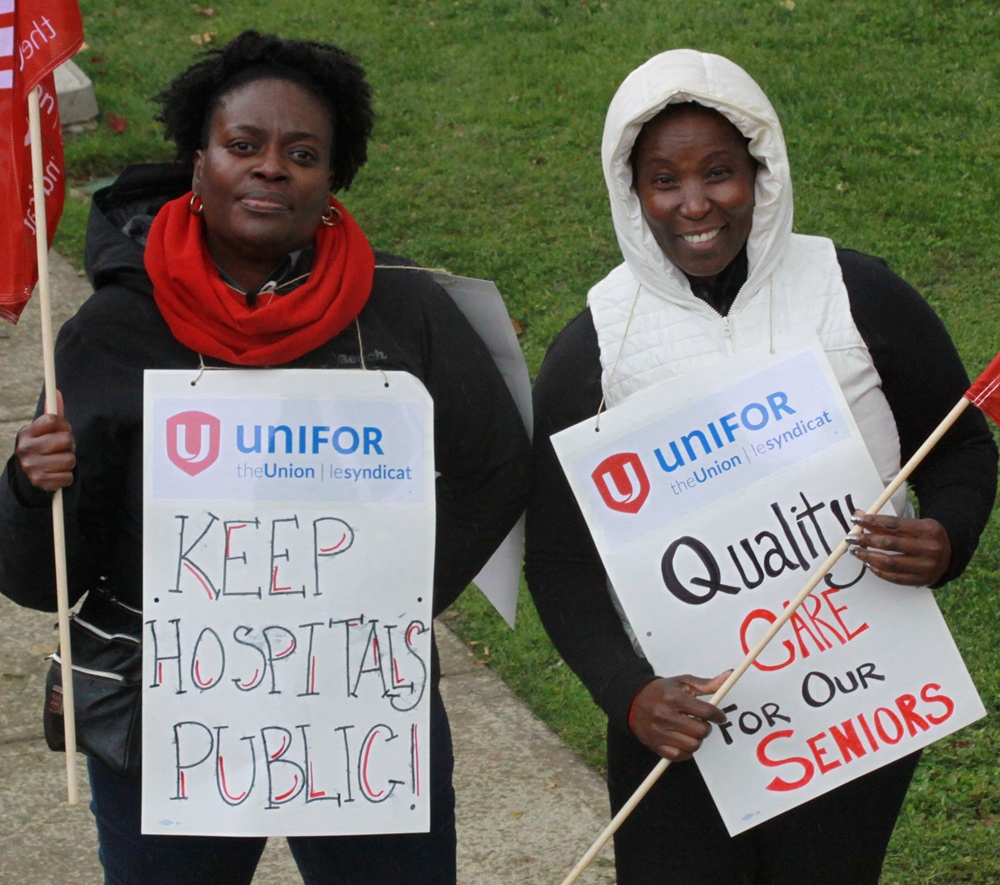
 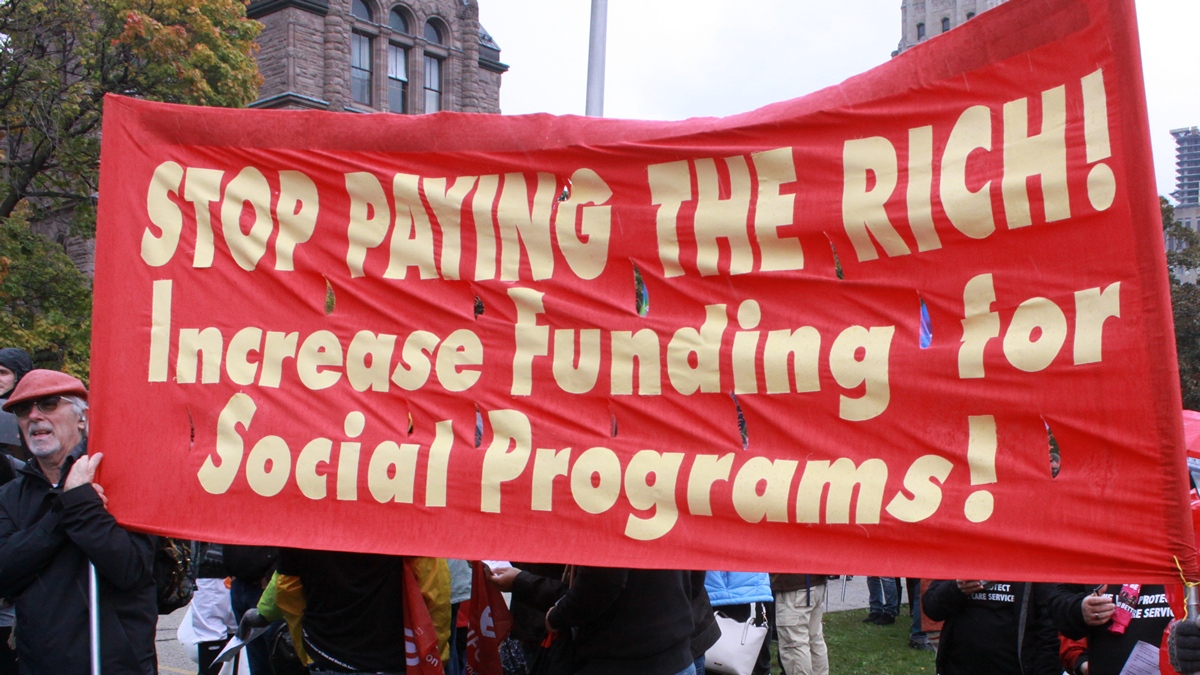
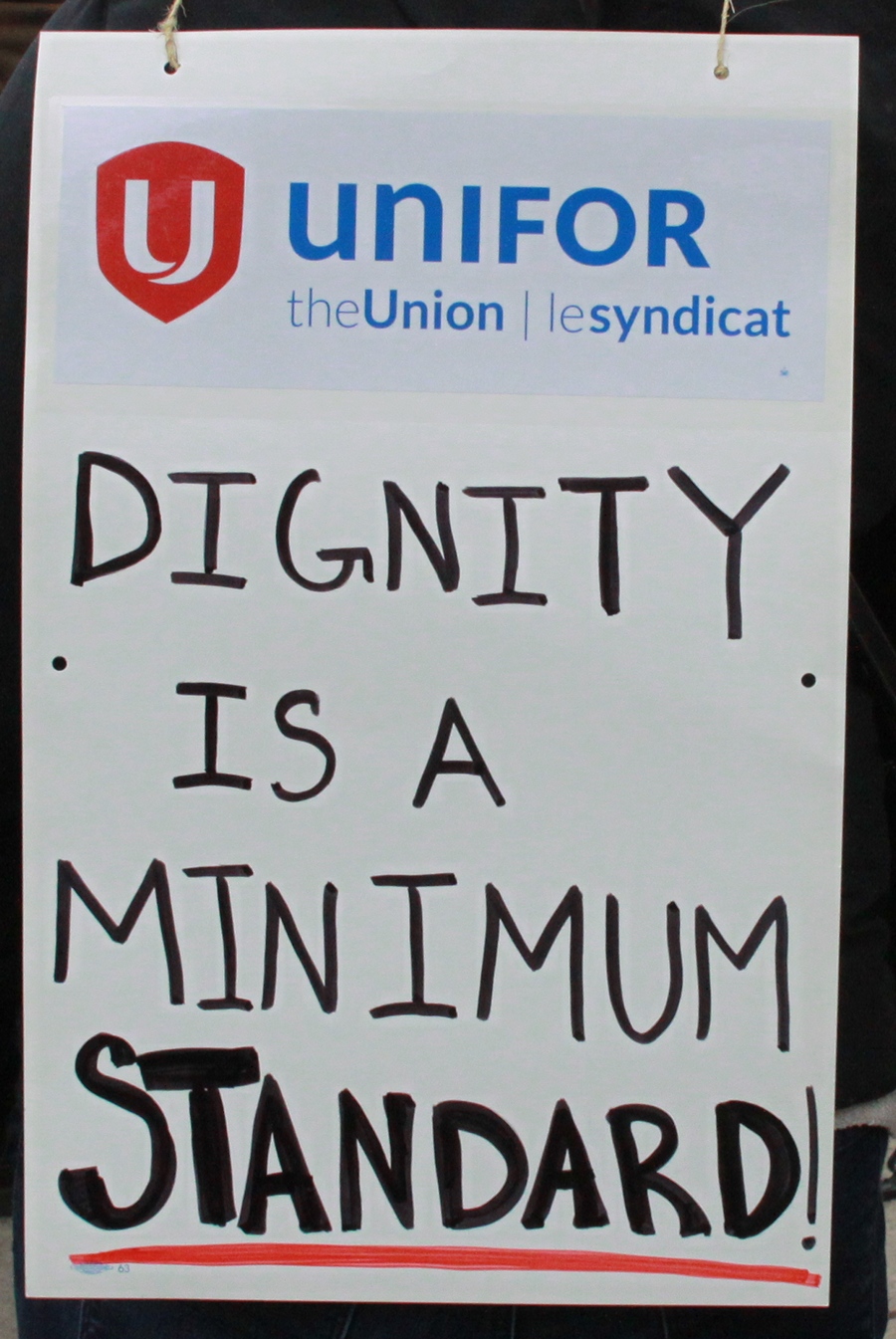 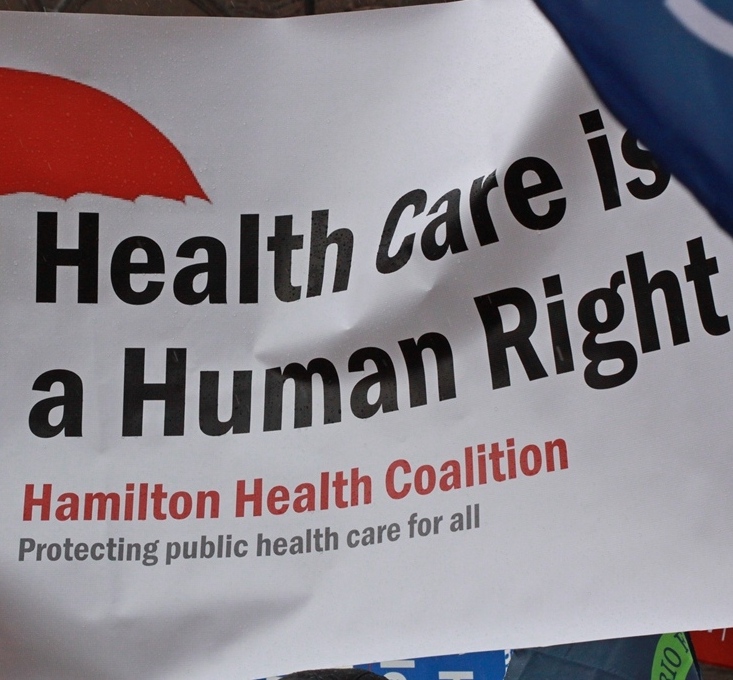 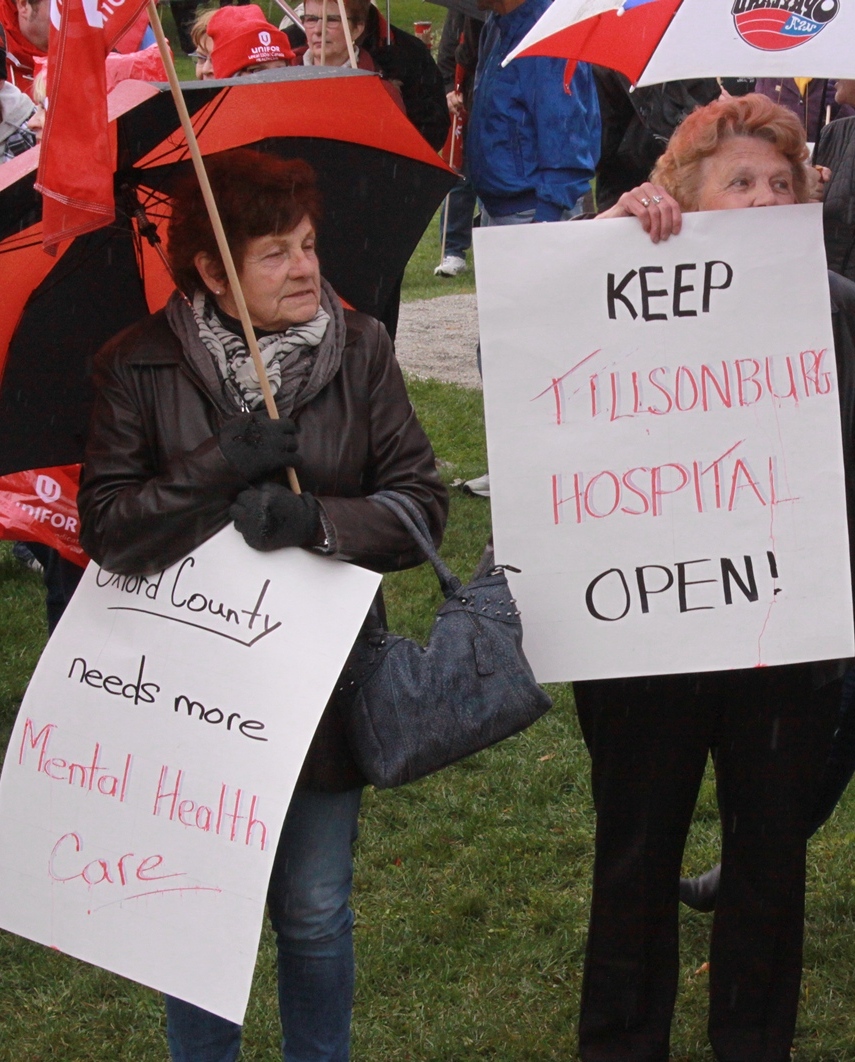 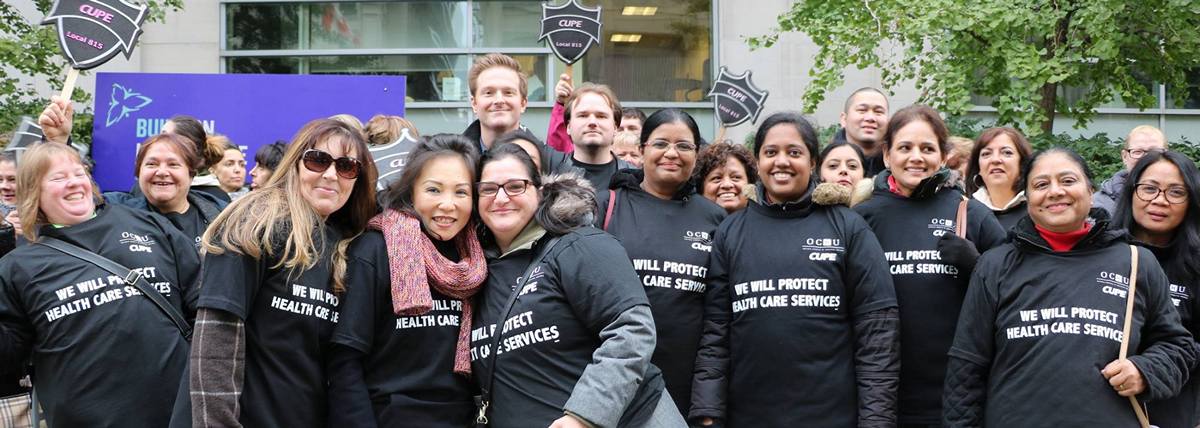
 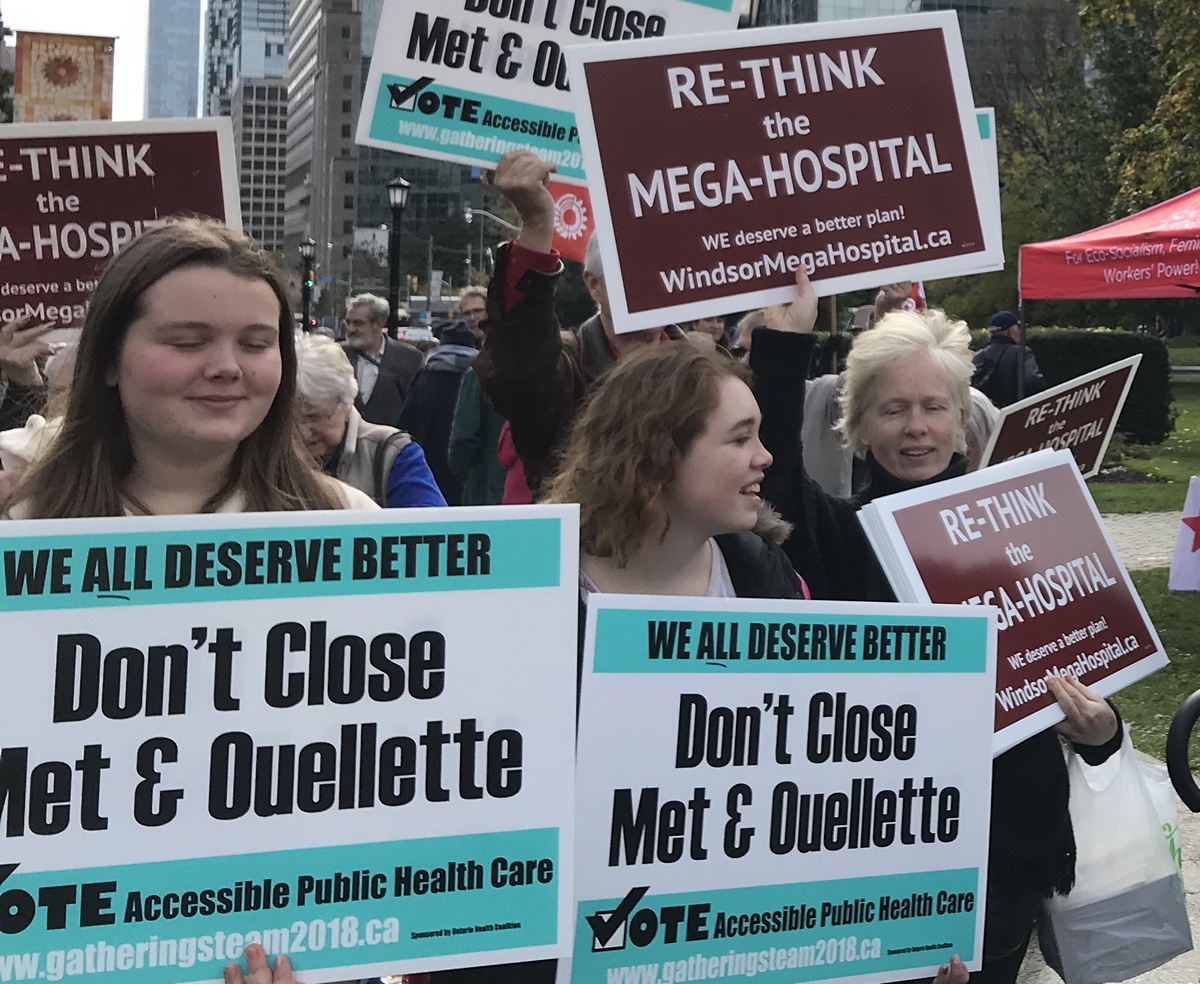
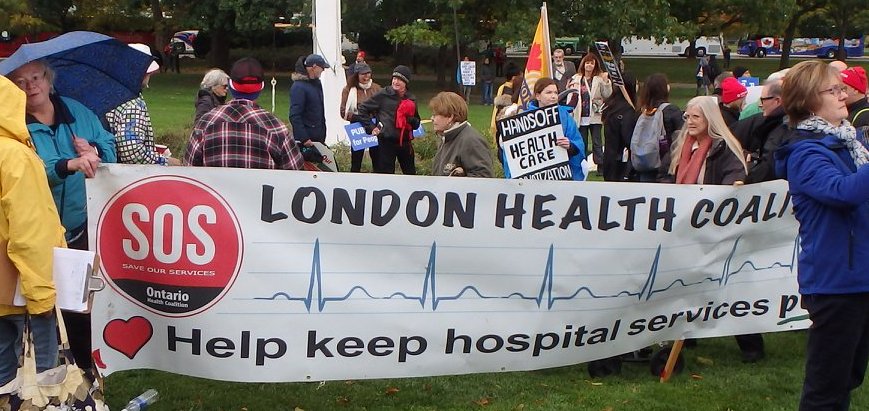 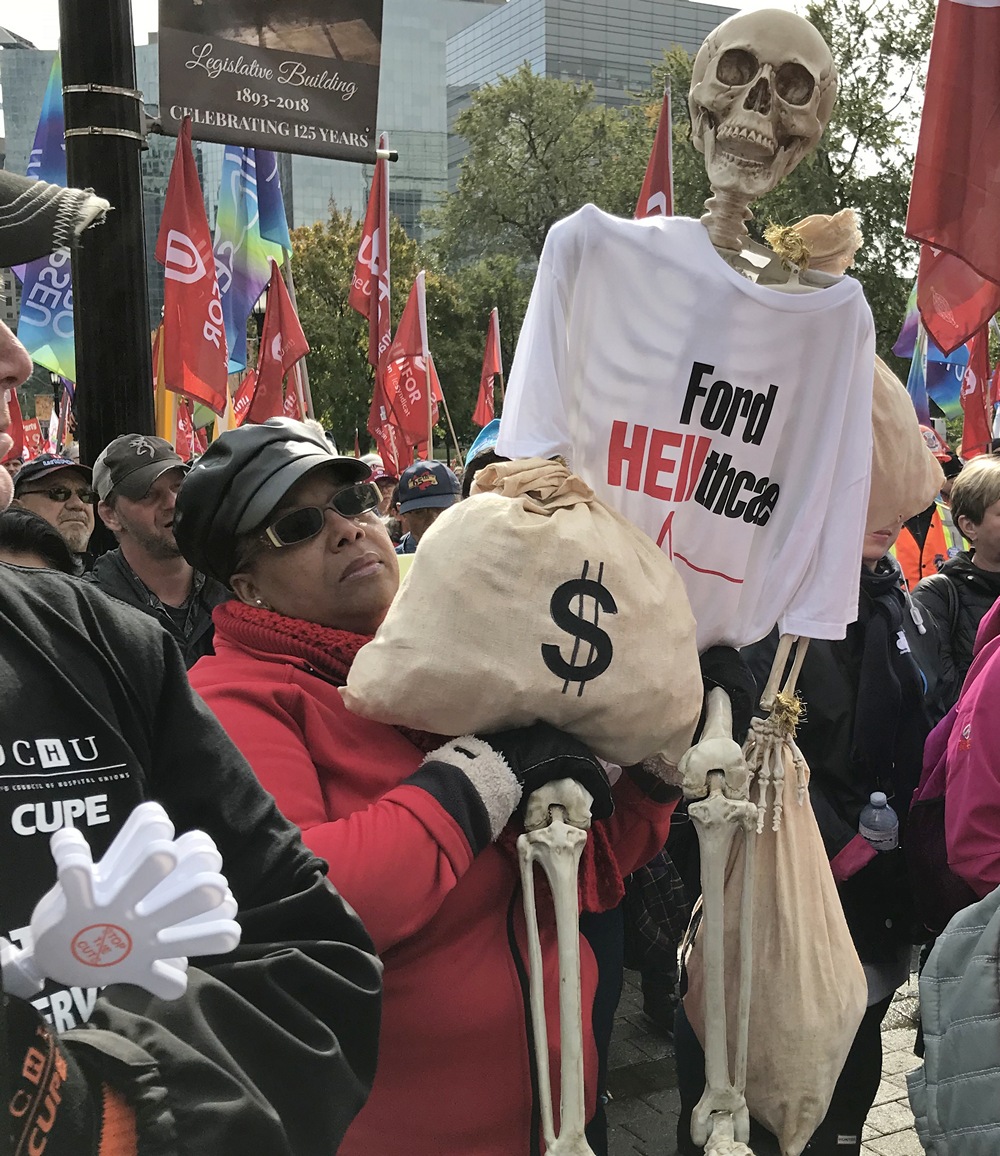
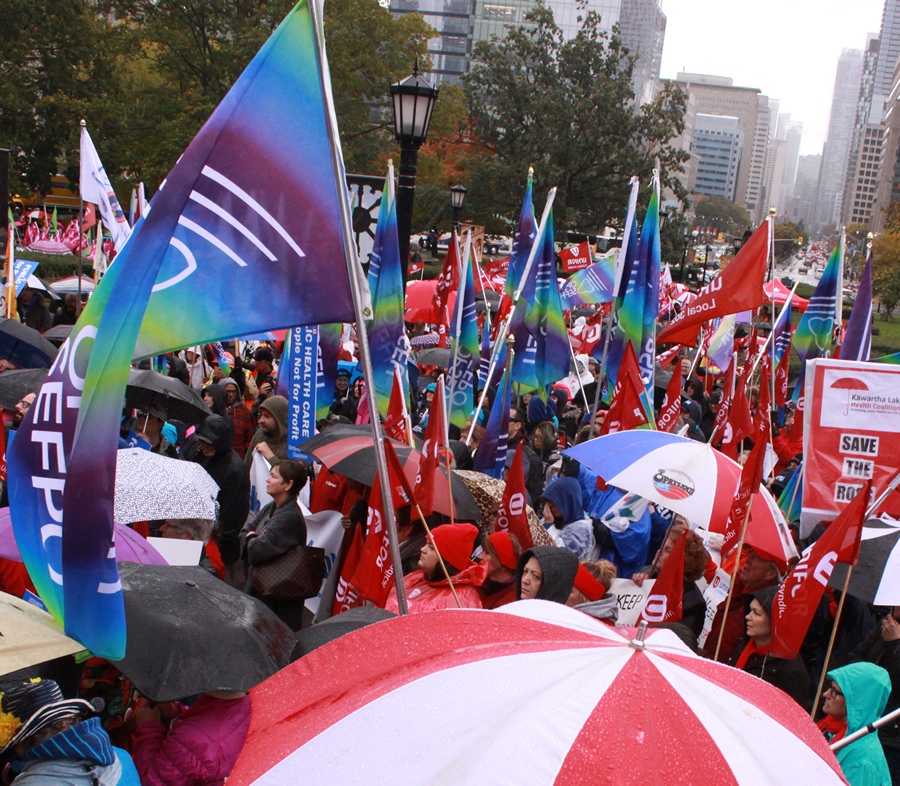 


For
Your Information
Bill 47 -- Making
Ontario Open for Business Act, 2018
On October 23, Jim Wilson, Ontario Minister of Economic
Development, Job Creation and Trade, tabled Bill 47, the Making
Ontario Open for Business Act, 2018. It is an
omnibus bill which amends the Employment Standards Act,
2000, the Labour Relations Act, 2009, and the Ontario
College of Trades and Apprenticeship Act, 2009. It substantially
changes the province's employment standards and
labour relations legislation, including reversing most of the
changes contained in Bill 148, passed by the Wynne Liberals in
June 2017, which the government says are causing employers the
most concern and unnecessary burden. Below are some of the key
features of Bill 47:
Changes to Employment Standards Act, 2000
Bill 47 changes to the Employment
Standards
Act,
2000 will:
a) Freeze the minimum wage at $14 per hour until 2020.
In
the words of the government it will impose "a 33-month pause in
minimum wage increases with annual increases to the minimum wage
tied to inflation" starting in 2020.
b) Repeal the right of a worker to request changes to
the
work schedule or work location after being employed for three
months.
c) Reduce the emergency time-off provisions in Bill 148
from
10 days, including two paid days, to three unpaid days off for
personal illness and family emergencies and two unpaid days off for
bereavement.
d) Repeal the right of workers to refuse changes to
their
work or work schedule if not given a minimum four days (96 hours)
notice.
e) Repeal the requirement that employers keep records of
scheduling provisions.
f) Introduce changes that will prevent
workers from accumulating sick days as statutory entitlements.
g) Remove equal pay for equal work rights for
part-time,
casual, temporary or temporary- assignment employees such as
those working for temporary work agencies.
h) Reinstate the right of employers to ask for evidence
in
the form of a medical note in cases of employees taking time off
for medical reasons.
i) Reduce maximum penalty fines for violating the Employment Standards Act, 2000 from
$350/$700/$1,500 to $250/$500/$1,000.
Changes to Ontario's Labour Relations Act, 1995
Bill 47 changes under the Labour Relations Act, 1995,
("LRA") will:
a) Repeal card-based union certification for workers in
home
care, building trades and temporary help agencies contained in
Bill 148 and revert to a voter-based, "secret-ballot"
system.
b) Repeal the ability of a union to ask an employer for
a
list of employees and contract information when it can show at
least 20 per cent of a company's workforce is in favour of a
union in order to "protect Ontarians' privacy and personal
information."
c) Repeal the government's ability to enact union
successor
rights (i.e. the right of a union to continue to represent the
workers of an institution after it is privatized or sold) in
publicly funded enterprises such as home care.
d) Repeal the power of the Ontario Labour Relations
Board
("OLRB") "to review and consolidate newly certified bargaining
units with existing bargaining units" but empower the OLRB to
"review the structure of bargaining units where the existing
bargaining units are no longer appropriate for collective
bargaining." In other words, prevent smaller unions from joining
with larger ones but allow the OLRB to decertify a union if it
decides that it is "no longer appropriate for collective
bargaining."
e) Repeal Bill 148's first collective bargaining
agreement
mediation and mediation-arbitration provisions and reinstate
OLRB involvement in first collective agreement arbitration.
f) Reduce the maximum fine for breaking labour laws
from
$5,000 to $2,000 for individuals and from $100,000 to $25,000
for corporations.
g) Bill 47 also notes that under the changes to the Labour
Relations
Act,
1995: "Various Consequential amendments are
made to the Crown Employees Collective Bargaining Act,
1993, the Occupational Health and Safety Act, 1997,
the Public Sector Dispute Resolution Act, 1997, the Public
Sector Labour Relations Transition Act, 1997
and
the School Boards Collective Bargaining Act, 2014. What
"consequential amendments" are not spelled out.

Working People Step Up Opposition to
Anti-Social Offensive in Europe
Germany
Mass Demonstration Opposes Attempts
to Sow Racist
Divisions
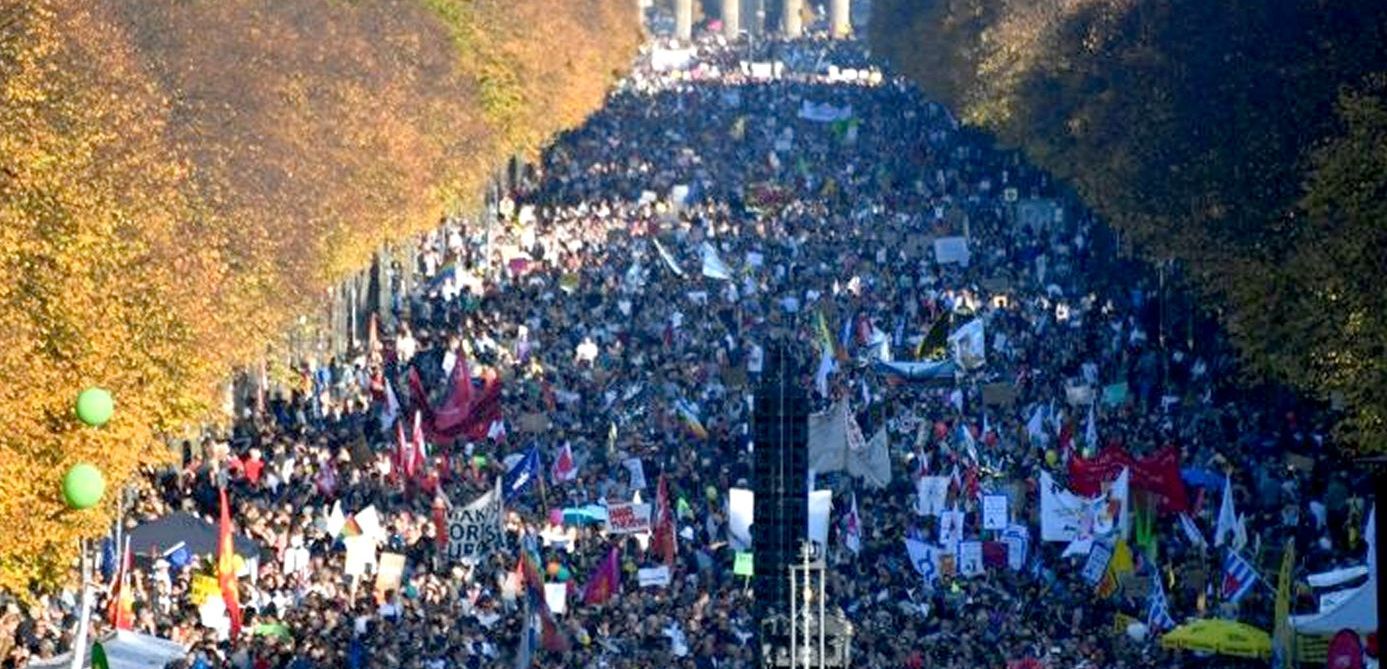
People from all
over Germany converged in Berlin on October 13 in a mass action
against racism and xenophobia, and parties that espouse such
aims. The action was organized by a broad alliance of
associations, labour unions, parties and rights groups. An
estimated 240,000 people took part. Previously, throughout the
summer, anti-immigration protests have been taking place in
eastern German cities.
Marchers carried placards reading "build bridges not
walls,"
"united against racism" and "we are indivisible -- for an open
and free society." They vehemently rejected attempts to create
divisions in German society, with the word of the day being
"unteilbar" which translates as "indivisible."
As in Canada, the financial oligarchy in Germany is
desperate
to consolidate its power over the human and natural resources of
the country. It is raising issues linked to immigration to foment
social divisions. It does this by not permitting a serious
inquiry into issues related to the global movement of peoples as
a result of the neo-liberal global economy and the wars of
aggression and occupation taking place, especially in West Asia
and North Africa, which have led to massive migrations of persons
into Europe.
A feature of the state-organized offensive is the
bolstering of parties called extremist which are then said to represent
public opinion, and to blame the people for racism and smash any
attempt by the people to organize themselves politically in defence of
the rights of all.
Disinformation about how the issue of the tragic
displacement
of peoples caused by war and aggression by the U.S. and NATO, of
which Germany is a member, is used to depoliticize the movements
of the people aimed at changing the direction of the economy and
creating an anti-war government.
The mass demonstration in Berlin brings honour to the
German
working class and people who have a legacy to defend to never
again permit the crimes against humanity to be committed in their
name.

France
Mass Protests Denounce Neo-Liberal Social
and Labour Reforms
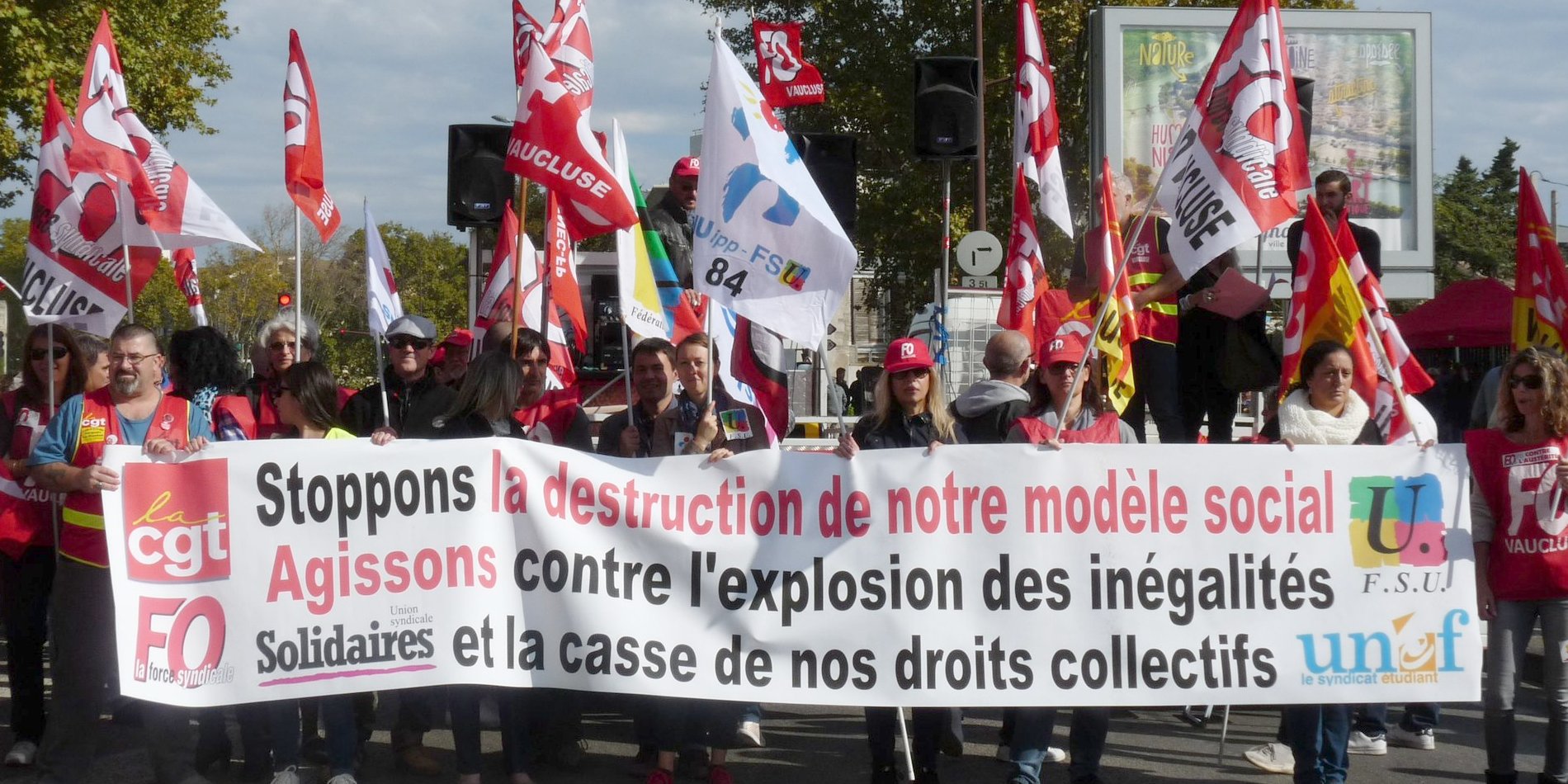
Avignon
Hundreds of thousands of workers, students and others
took
part in mass demonstrations in more than 100 rallies across
France to reiterate their opposition to the neo-liberal social
and labour reforms being imposed by the government of French
President Emmanuel Macron.
The protesters demanded an increase in wages, pensions,
gender equality and an end to privatization. According to
organizers, more than 300,000 people, including workers,
students, retirees and others participated in marches in more
than a hundred places in the country. As many as 50,000 people
protested in Paris alone.
The call to action issued jointly by six unions on
August 30
denounced Macron's "ideological policies targeting the
destruction of our social model, favoring notably the explosion
of inequality and the breaking of collective rights."
Participating unions in the October 9 action included those in
the health, education, transport, postal and communication and
metallurgy sectors.
Student unions and organizations the youth issued a
joint
press release on October 5 in which they stated, "Faced with
reforms that deny us all rights in the future by closing the
doors of higher education, by condemning us to precariousness
throughout our lives (during our studies, during our professional
integration but also at the time of retirement), the unions and
young people, signatories of this text, call for a protest on
October 9."
The mass actions by the workers and youth underscores
the
crisis facing the French nation-state. Macron's government, far
from distancing itself from that of his predecessor François
Hollande, has continued its retrogressive social and labour
reforms and its permanent state of emergency.
The Macron government has slashed housing benefits,
imposed
taxes on pensions and restricted entry to university admissions.
Various students organizations have been protesting against the
derailment of universal access to education in the country. A
rampant plan for privatization is also underway in the fields of
energy and transportation. Privatization of airports and similar
efforts in the railway sector had earlier invoked widespread
protests from aviation workers and rail workers. The French
government has also made conditions far more difficult for
immigrants, refugees and asylum seekers in France.
At the October 9 protest, the students, workers and
retirees
gave a fitting reply, chanting, "We're not complaining, we're
revolting!" while carrying banners saying they have had enough
of austerity and unemployment. Many of them said that Macron's
proposed welfare reforms will "disadvantage the weakest in
society." The elderly turned out to voice their disapproval of
cuts to their pensions, which mean the difference between being
able to make ends meet or not.
Unions are planning further mobilizations in the coming
months on specific reforms such as changes to pensions and the
unemployment insurance system.
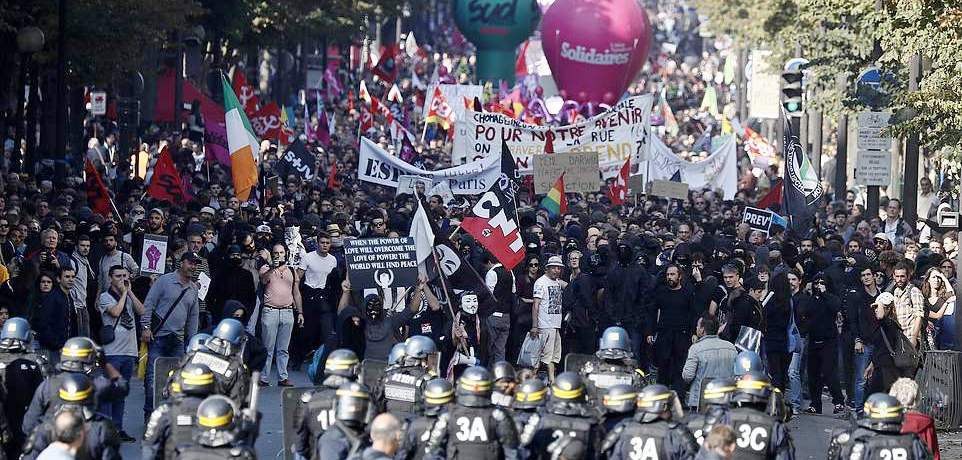
Paris

2018 Global Peace Forum on Korea
Important Event Advances Peace
on the Korean Peninsula
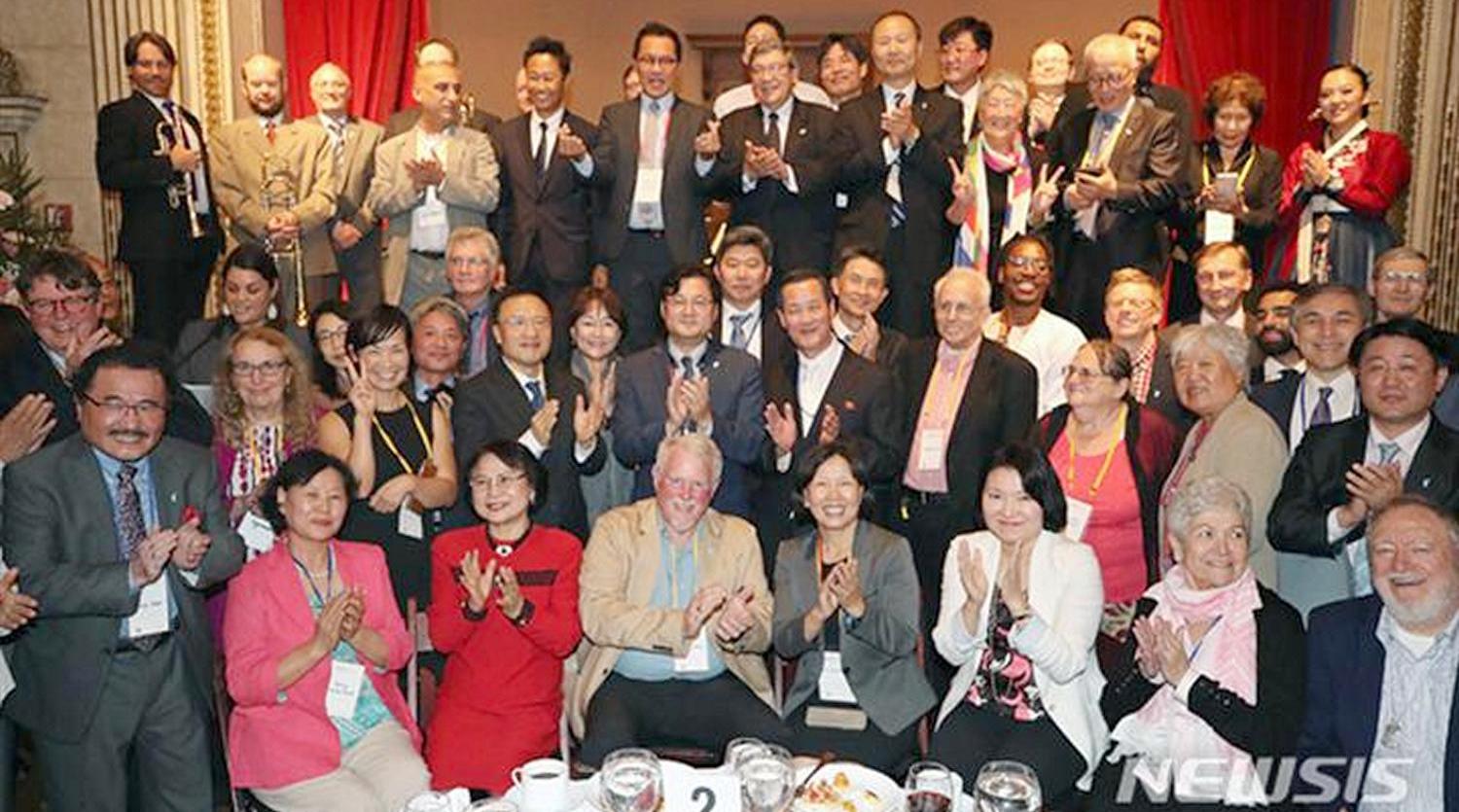
The 2018 Global Peace Forum on Korea (GPFK) was held at
Columbia University in New York City from September 29 to 30, at
a time when the prospect of peace and denuclearization of the
Korean peninsula is on everyone's mind. The forum was organized
under the theme "Peace and Prosperity for Korea and the
World."
The event drew participants from around the world,
including
the countries that comprise the Six Party Talks to Denuclearize
the Korean Peninsula -- the Democratic People's Republic of Korea
(DPRK), Republic of Korea (ROK), Russia, China, the U.S. and
Japan.
The moderator and one of the main organizers of the
GPFK was
Professor Kiyul Chung. He also served as co-chair of the forum's
organizing committee and is the Executive Director of the
Institute for 21st Century International Relations, based in
Washington, DC. Professor Chung's dedication to the cause of
peaceful reunification is well-known, including his role as
Secretary General of the Korea Truth Commission in 2001.
Originally planned for Washington, DC, the forum was
moved to
New York to permit the participation of members of the DPRK's
Permanent Mission to the United Nations who are unjustly
restricted to a 25-kilometre radius of New York City.
One of the overarching themes of the event was that
peace on
the Korean Peninsula concerns not only the Korean people, but the
whole world. Thus the proceedings of the forum called on all
peace and justice-loving people to support the efforts of the
governments and peoples of the DPRK and the ROK now that a
lasting peace is within reach.
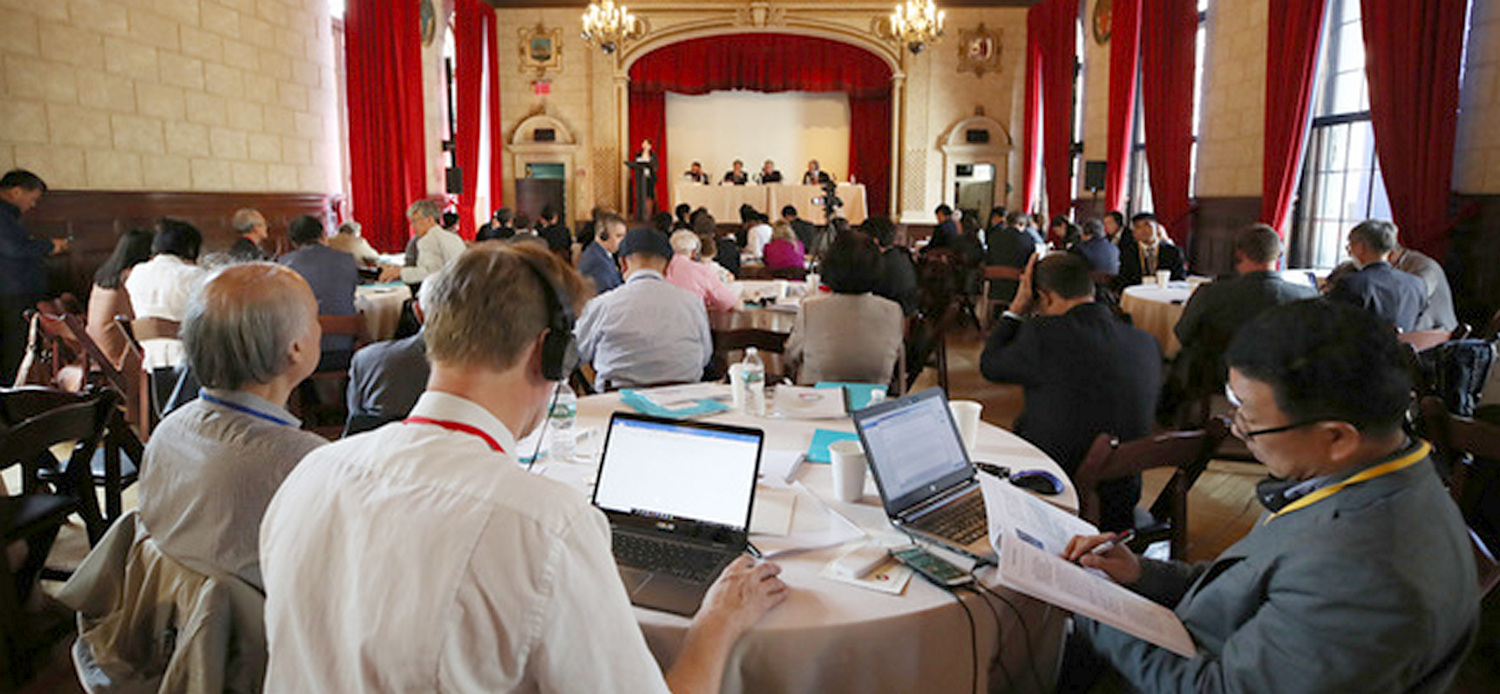
Opening Session
The opening address by forum co-chair Jim Winkler,
President
of the National Council of Churches, focused on this historic
moment, that after more than 70 years of national division and
state of war with the U.S., the Korean people are moving as one
toward peace as never before. He highlighted the recent
inter-Korean summits between Chairman Kim Jong Un of the DPRK and
President Moon Jae-in of the ROK and the strengthening of
inter-Korean ties such as the recent agreements to remove weapons
from the Demilitarized Zone, including a no-fly zone over the
zone and a joint demining operation, to ensure that no acts of
aggression take place between the DPRK and ROK and other peace
initiatives. He concluded his remarks by pointing out that what
is needed is for the U.S. to sign a peace treaty with the
DPRK.
Following that, a message of congratulations from
former
U.S. President Jimmy Carter was read to the forum encouraging the
deliberations of the participants on the important question of
peace on the Korean Peninsula.
The forum also received a message of congratulations
from
Rosemary DiCarlo, UN Under-Secretary General for Political
Affairs, who noted that the positive developments towards peace
on the Korean Peninsula were encouraging and that the UN pledged
to assist these efforts.
A high-level ROK government representative to the
forum, Ms.
Lee Mi-kyung, former National Assembly member and President of
the Korean International Cooperation Agency, noted that 2018
marks the 70th anniversary of the UN Declaration of Human Rights
and that September 21 was the 47th anniversary of the UN
International Day for Peace. She pointed out that peace is
necessary for human rights to flourish and that only by ensuring
the rights of every human being in each country in the world can
peace flourish everywhere. She outlined the many initiatives the
Moon government is undertaking to promote inter-Korean peace
initiatives.
Presentation by DPRK Representative
A paper entitled "Inter-relation of the
Denuclearization of
the Korean Peninsula and the Normalization of U.S.-DPRK
Relations" prepared by Professor Tae Hyong Chul, the President of
Kim Il Sung University and member of the Supreme People's
Assembly of the DPRK, was presented by Mr. Ri Ki Ho, Councillor
of the DPRK's Permanent Mission to the UN. It conveyed the
strength, hope and dignity of the DPRK and its people to affirm
their right to be and their dedication to the peaceful
reunification of Korea.
The presentation explained that the DPRK was given
little
choice but to arm itself with tactical nuclear weapons due to the
nuclear threat from the U.S. Consequently, the removal of the
threat posed by the U.S. is a condition for the denuclearization
of the Korean Peninsula and normalization of relations with the
U.S.. Thus, denuclearization must be a bilateral effort by the
DPRK and the U.S.
Referring to the June 12 DPRK-U.S. Summit in Singapore,
the
paper noted that the DPRK wishes to continue the positive
atmosphere this created. However, legal and institutional
measures must be taken toward a declaration and peace treaty to
end the Korean War that would foster normalization of U.S.-DPRK
relations and tangible steps towards the complete
denuclearization of the Korean Peninsula.
The paper highlighted the importance of normalizing
relations
between the DPRK and the U.S., noting for example that within
this framework of hostility the DPRK's nuclear deterrent is
somehow considered a threat, whereas the nuclear arsenals of Britain,
France, Israel are not. It also noted that this
hostility and distrust has consistently undermined previous
attempts at denuclearizing the Korean Peninsula.
The presentation ended by once again entreating the
U.S. to
sign a peace treaty as a concrete measure to end hostilities and
create the conditions for denuclearization and peace.
Sanctions as Violations of Human Rights
In the first panel discussion entitled "Peace and
Security,"
Doug Hostetter, Director of the Mennonite Central Committee (MCC)
UN Office, pointed out that if there is a lesson to be learned
about the more than 10 UN Security Council resolutions passed
against the DPRK, it is that they have clearly failed in their
stated aim of forcing the DPRK to abandon its nuclear weapons
program.
He noted that these sanctions have had a very
detrimental
effect on the civilians in the DPRK and have forced many NGOs
doing humanitarian work in the DPRK to leave. He gave the example
of the MCC not even being able to send nail-clippers in
children's kits to the DPRK because they were made of metal. He
called these sanctions "collective punishment" against the people
of the DPRK and that the UN Security Council itself is in
violation of international human rights law such as the 1899
Hague regulations. Hostetter noted that it is the diplomatic
initiatives of the DPRK that have led to the current positive
state of inter-Korean relations and also DPRK-U.S. relations,
adding that diplomacy is key to ensuring peace on the Korean
Peninsula.
Need to End the Cold War Framework
In a session entitled "Northeast Asia Regional
Relations,"
Professor Lee Jung-chul of the Institute for Peace and
Reunification at Soongsil University in Seoul noted that for the
longest time it was a Cold War framework that defined relations
between the DPRK and ROK and that it was predicated on
maintaining the U.S.-ROK military alliance. This has been hugely
damaging to the Korean people in their fight for peace and
reunification. He noted that previous south Korean governments
took the attitude that to have peace on the Korean Peninsula "you
prepare for war," i.e., a second Korean War. He stated that the
current Moon administration is taking the position that to have
peace "you prepare for peace," and this has created a new
situation on the Korean peninsula
Professor Lee also noted that the efforts of the Korean
people themselves are the decisive factor and they will determine
their own future based on peace and reunification, not any
outside force or big power politics.
Role of People-to-People Relations
The last panel of the first day of the forum discussed
civil
society and people-to-people projects and engagement between
international NGOs and religious organizations working in the
DPRK. These relations lead to understanding and appreciating the
DPRK, its government and its people because the experience of
those who actually work in the DPRK goes against the
disinformation in the monopoly media.
One of the speakers, Dr. Kee B. Park, a U.S. physician
of
Korean descent who teaches at Harvard Medical School, shared his
experience working in the DPRK. He expressed great admiration for
the doctors and medical personnel of the DPRK for their knowledge
and professionalism and the ease with which he has been able to
work with them and learn from them.
The first day's sessions were followed by a reception
for the
participants. The special guest of honour was the new Permanent
Representative of the DPRK to the UN, His Excellency Ambassador
Kim Song, who thanked everyone for their support for peace on the
Korean Peninsula.
During the reception, there was a cultural performance
of
contemporary and traditional Korean music as well as singing by
the participants. Various people came forward and expressed their
heartfelt appreciation and their enthusiasm for the forum and
their determination to work for a lasting peace on the Korean
Peninsula.
At the end of the reception, the New York Declaration
for
Peace and Prosperity for Korea and the World was read out and the
first day's events were brought to an end.
The next day's morning session comprised exchanges and
discussion between the participants and the panelists and
speakers.
The Global Peace Forum on Korea was deemed to be a
resounding
success by the organizers and participants. Future events will
continue the discussions and actions to support the Korean
people's striving for peace and reunification which will be an
important contribution to peace and stability in the world.

All Out to Defend Revolutionary Cuba!
UN General Assembly to Vote Once Again
to End U.S. Blockade
of Cuba
On October 31, for the 27th time, the United Nations
General Assembly will debate and vote on a resolution calling for
an end to the U.S. blockade against Cuba. Last November for the
26th consecutive year the General Assembly approved the
resolution entitled "Necessity of ending the economic, commercial
and financial blockade imposed by the United States of America
against Cuba," this time with 191 votes in favour and only two votes
against
(the United States and Israel). Two years ago, on October 26,
2016, the vote condemning the blockade was unanimous for the
first time because the U.S., in the last days of the Obama
administration, and Israel, abstained rather than vote against
the resolution.
|
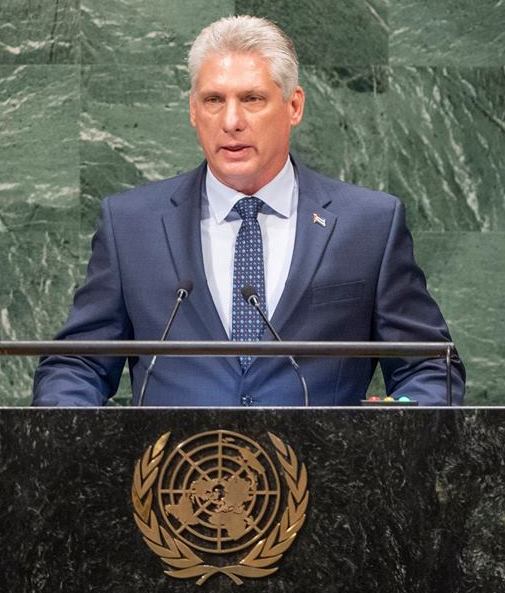
Cuban President Miguel Díaz-Canel at
United Nations,
September 26, 2018.
|
In his address to the UN General Assembly on September
26,
Cuban President Miguel Díaz-Canel spoke to the issue of the
blockade and the entire hostile policy of the U.S. government
towards his country:
The government of the U.S.
maintains an aggressive
rhetoric
towards Cuba and a policy aimed at subverting the political,
economic, social, and cultural system in my country. Contrary to
the interests of both peoples and giving in to the pressures of
minority sectors, the new U.S. government has devoted itself to
fabricating, under false pretexts, scenarios of tension and
hostility that serve nobody's interests.
He said this was in contrast to the fact that the two
countries had formal diplomatic relations and mutually beneficial
cooperation programs in a limited number of areas, and that the
two peoples shared increasingly closer historic and cultural
bonds, expressed in the arts, sports, science, and the environment,
among other fields.
President Díaz-Canel said the defining element
of the
bilateral relationship continues to be the blockade "which seeks
to suffocate the Cuban economy in order to generate hardships and
disrupt the constitutional order." This cruel policy punishes
Cuban families and the entire nation, and is the major obstacle
to the country's development. Given the blockade's aggressive
extraterritorial application, he said it seriously damages the
sovereignty and interests of all countries.
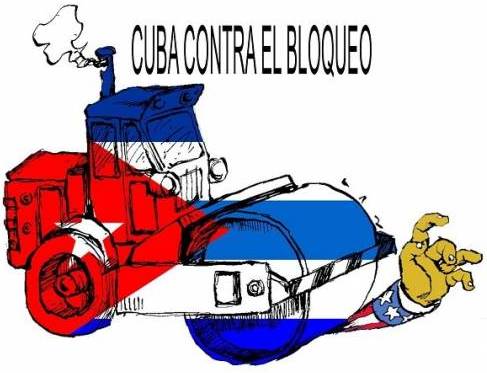 President Díaz-Canel thanked
UN member states on behalf of
the Cuban people for their "virtually unanimous" rejection of the
blockade. He pointed out that the U.S. government's hostile
actions also include covert programs of gross interference in
Cuba's internal affairs, with tens of millions of dollars
officially allocated for this purpose, in violation of Cuba's
sovereignty as well as the standards and principles on which the
UN is based. President Díaz-Canel thanked
UN member states on behalf of
the Cuban people for their "virtually unanimous" rejection of the
blockade. He pointed out that the U.S. government's hostile
actions also include covert programs of gross interference in
Cuba's internal affairs, with tens of millions of dollars
officially allocated for this purpose, in violation of Cuba's
sovereignty as well as the standards and principles on which the
UN is based.
He said Cuba will continue to tirelessly demand the end
of
the cruel economic, commercial and financial blockade, the return
of the territory illegally occupied by the Guantánamo Naval Base
and adequate compensation to its people for the thousands of dead
and disabled and for the economic and property damages done to
Cuba over so many years of aggression. At the same time, he
noted, Cuba will always be willing to engage in dialogue and
cooperate on the basis of respect and on an equal footing but it
will never make concessions affecting its sovereignty and
national independence.
The U.S. imperialists and any others hoping for the
Cuban
people to abandon their revolution were then sent a direct
message by the country's new president:
"The generational change in
our government should not
raise
the hopes of the enemies of the Revolution. We are the
continuity, not a rupture. Cuba has continued taking steps to
improve its model of economic and social development in order to
build a sovereign, independent, socialist, democratic, prosperous
and sustainable nation. This is the path that our people have
freely chosen.
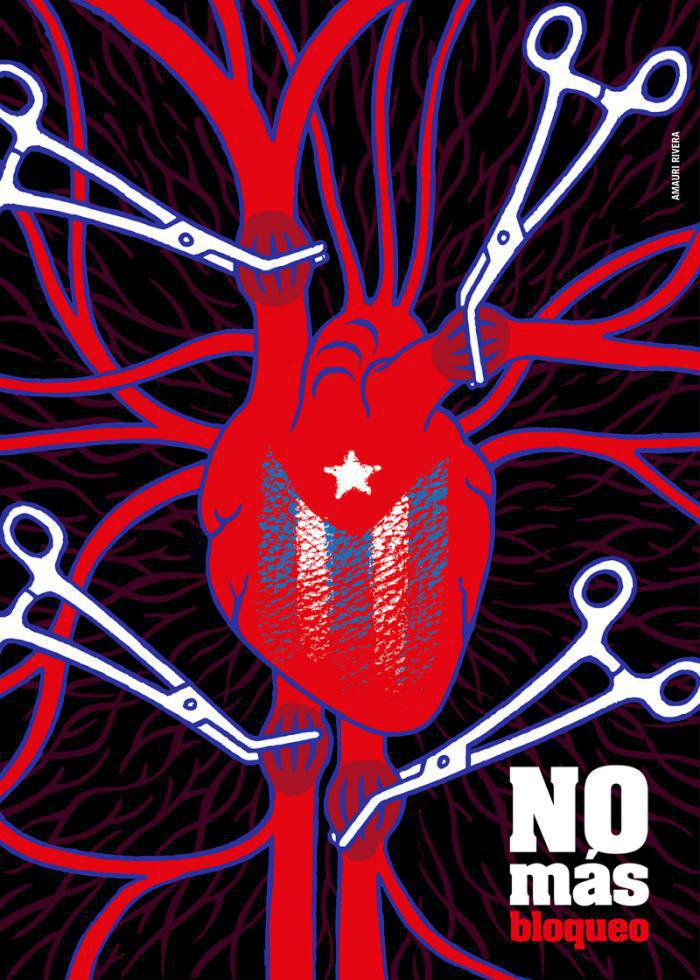 "The country will not go
back to the opprobrious past that it
shook off with the greatest sacrifices during 150 years of
struggle for independence and full dignity. By the decision of
the overwhelming majority of Cubans, we shall continue the work
that started almost 60 years ago." "The country will not go
back to the opprobrious past that it
shook off with the greatest sacrifices during 150 years of
struggle for independence and full dignity. By the decision of
the overwhelming majority of Cubans, we shall continue the work
that started almost 60 years ago."
President Díaz-Canel
concluded by saying it had
been
"exciting and pleasant" to take the floor at the same rostrum
from which Fidel exactly 58 years ago "expressed powerful
truths that still continue to shake us, in front of
representatives of more than 190 nations who, rejecting extortion
and pressures, every year fill the voting screen with green
lights of approval for our demand for the end of the
blockade."
The president's speech was met with a standing ovation.
After
he descended the podium, a long line of diplomats representing
countries from all around the world quickly formed to
congratulate him.
Representatives from many countries made a point of
denouncing the U.S. blockade of Cuba in their own speeches during
the General Debate at the 73rd session of the UN General
Assembly. This, along with the enthusiastic reception given President
Miguel Díaz-Canel after his speech and by the U.S. people at
meetings and other events held during his week-long visit to New
York City, portend another vote that overwhelmingly calls on the
U.S. to end its criminal blockade of Cuba.

Monthly picket in Montreal demanding end to blockade of Cuba, October
17,
2018.

Militant Support for Revolutionary Cuba
Expressed in
New York
City
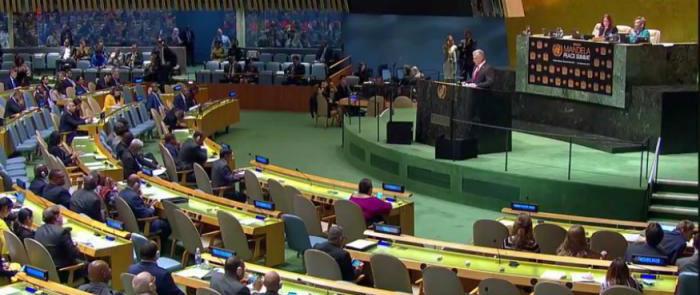
Presentation by Cuban President Miguel Díaz-Canel
at the UN Nelson Mandela Summit for
Peace, September 24, 2018.
 Wherever Cuban President
Miguel Díaz-Canel went
in New
York City during his week-long visit from September 23-30, he was
met with militant enthusiastic support for Cuba. His itinerary
included an address to the UN General Assembly and a presentation
at the UN Nelson Mandela Summit for Peace. On Cuba's behalf he
met with various heads of state at the UN, with religious
leaders, industry and agricultural executives, with Cubans
residing in the U.S. as well as U.S. cultural personalities and
artists. He also paid a visit to Ground Zero to honour the
victims of the 9/11 attack. Wherever Cuban President
Miguel Díaz-Canel went
in New
York City during his week-long visit from September 23-30, he was
met with militant enthusiastic support for Cuba. His itinerary
included an address to the UN General Assembly and a presentation
at the UN Nelson Mandela Summit for Peace. On Cuba's behalf he
met with various heads of state at the UN, with religious
leaders, industry and agricultural executives, with Cubans
residing in the U.S. as well as U.S. cultural personalities and
artists. He also paid a visit to Ground Zero to honour the
victims of the 9/11 attack.
"Cuba Speaks for Itself" in New York City

Riverside Church in Manhattan, September 26, 2018.
President Díaz-Canel received a rousing welcome
at a
gathering of more than 2,000 people who waited in line for hours
to hear him speak at a political-cultural evening billed as "Cuba
Speaks for Itself" at the historic Riverside Church in
Manhattan on September 26. Over the years the interdenominational
church has been the scene of memorable speeches by numerous
historic leaders. Martin Luther King delivered his famous
anti-war speech "Beyond Vietnam: A Time to Break
Silence" there on April 4, 1967. Nelson Mandela spoke at the
church shortly after his release in 1990 and Fidel Castro spoke
there in September 2000 on the occasion of the UN Millennium
Summit.
Though it had not been announced in advance, Venezuelan
President Nicolás Maduro, who had addressed the UN General
Assembly earlier in the afternoon, also attended the gathering and
spoke to the enthusiastic crowd. In attendance as well were a
number of the almost 200 U.S. graduates of the Latin American
School of Medicine in Havana.
 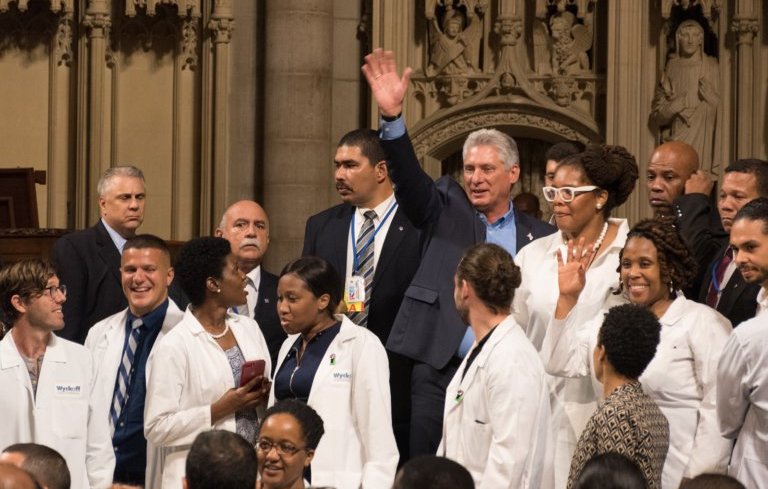
Left: Cuban President Díaz-Canel and Venezuelan President
Nicolás Maduro. Right: President Díaz-Canel with U.S.
graduates of
the Latin American School of Medicine in Havana.
Meeting with U.S. Agriculture Representatives
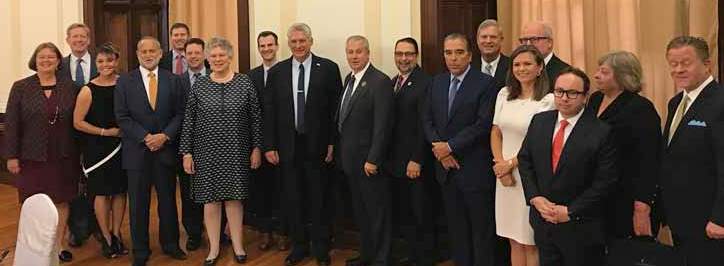
Representatives of the U.S. agricultural sector with Cuban
President Díaz-Canel,
September 27, 2018.
On September 27, President Díaz-Canel held an
important
meeting with representatives of the U.S. agricultural sector,
organized by the United States Agriculture Coalition for Cuba
(USACC) and the National Association of State Departments of
Agriculture (NASDA). The meeting was described as "friendly and
constructive."
President Díaz-Canel pointed out that
agriculture is one of
the sectors that has advocated the most for normalization of
U.S.-Cuba relations. "It's very important that people like you
can visit Cuba, that we can converse, exchange, so that our
reality is truly known," he stated, noting that Cuba is open to
talks, as long as they are based on respect, without conditions
or impositions. Sales of U.S. agricultural products and food to
Cuba began in 2001, but reciprocal trade by Cuba is banned by the
U.S. At one time Cuba imported U.S. goods worth more than
U.S.$1.1 billion in a single year, but that has been decreasing
due to the blockade.
President Díaz-Canel noted that Cuba currently
has to import
more than U.S.$2 billion worth of food annually, "under very
complex conditions, with countries that are located at a great
distance, where the freight costs are very high, where, in fact,
they raise the prices, as they know the needs and limitations we
have."
One indication of the damages caused by the blockade is
that
in the period from June 2017 to March 2018, losses to Cuba's
agricultural sector amounted to U.S.$413,793,100, an increase of
U.S.$66,195,100 over the previous period
Meeting with Religious Leaders
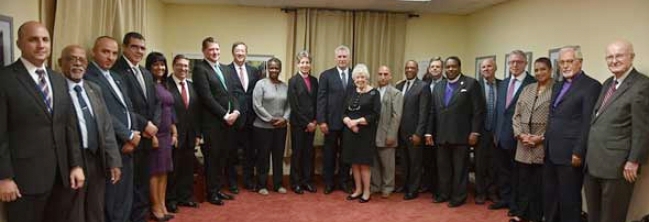
Delegation of U.S. religious leaders meets with Cuban President
Díaz-Canel.
President Díaz-Canel welcomed a delegation of
U.S. religious
leaders during his visit to the UN. He spoke of their efforts
over the years to lift the blockade, for the return of Elián
Gonzalez to Cuba and to free the five anti-terrorist fighters
from U.S. jails.
The religious leaders in turn pledged to continue their
efforts. Rev. Darin Moore, a member of the board of the U.S.
National Council of Churches who recently visited Cuba said the
U.S. people overwhelmingly want the blockade to end. "As sure as
I am standing here, I can affirm the blockade will end and our
peoples will build bridges," he said. Jim Winkler, President of
the U.S. National Council of Churches, recalled that the
organization's first declaration against the blockade was in
1968. "As we promised the President tonight, that will continue,
fighting every day for that objective," he said.

Despicable U.S. Provocations Fail Miserably in Attempt
to Isolate Cuba
|
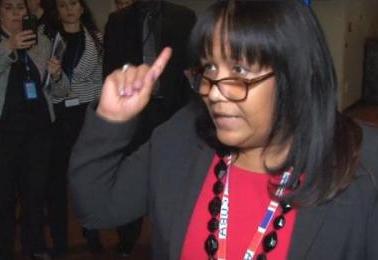
Ambassador and Permanent Representative of Cuba to the United Nations,
Anayansi Rodríguez Camejo denounces U.S. provocation.
|
The U.S. and its representatives at the UN recently
demonstrated their bitter vindictiveness at Cuba's high
standing at the UN and the inevitability of another vote in
favour of ending the U.S. blockade against Cuba.
On October 16, the U.S. State Department assembled a
gang of
its "diplomats" and anti-Cuba mercenaries to stage a provocation
against Cuba on UN premises. Those involved included the
Secretary General of the Organization of American States, Luis
Almagro, ever ready to answer the call of his U.S. masters.
In a statement on October 14, Cuba's Permanent Mission
to the
UN denounced the U.S. government's intention to use the Economic
and Social Council (ECOSOC) Chamber of the UN to launch a phony
"human rights" campaign against Cuba billed as "Jailed for What?"
allegedly to support those it refers to as "political prisoners"
in the country.
Cuba stated this act against a member state of the UN
in the
chamber of
one of its major bodies, in contravention of the
purposes and principles of the UN Charter, served to tarnish the
name of the UN. Instead of holding what it called a political
farce in the worst taste, the statement said the U.S. would do
better to ask forgiveness and provide reparations to the Cuban
people for the damages caused by its 56 years of blockade.
The Ambassador and Permanent Representative of Cuba to
the
United Nations, Her Excellency Anayansi Rodríguez Camejo,
sent a letter of protest to UN Secretary-General António
Guterres
asking that the event be cancelled and for an investigation to
determine accountability for the open violation of rules
governing the use of UN conference rooms.
When the "show" went ahead anyway, the audience is
reported
to have consisted mainly of media representatives and members of
U.S.-financed anti-Cuba "NGOs." Almost none of the UN-accredited
missions or others who were invited showed up. The members of
Cuba's UN mission in New York were in attendance, however, despite
not being invited and its Ambassador being barred from
speaking.
Kelley E. Currie, the U.S.
representative to the UN
Economic
and Social Council opened by calling on other countries to join
the U.S. in attacking Cuba on the basis that Cuba does not "share
their vision of human rights." No sooner had she begun her
diatribe than the voice of Cuba's Permanent Ambassador to the UN
could be heard demanding to speak and denouncing the fraudulent
campaign and the lies it is based on. Meanwhile, the rest of the
Cuban diplomats, supported by others from the Bolivian and
Nicaraguan missions, began pounding on their desks and shouting
"Cuba sí, bloqueo no!" effectively drowning out the hypocritical
words of the speakers. Some also held up photos showing police
abuse of citizens in the U.S. and scenes of torture from the Abu
Ghraib prison camp. At one point the U.S. had UN Security remove
those who joined in the chorus of protest against the pathetic
"campaign launch" from the public gallery.
The vigorous defence of Cuba's dignity and denunciation
of
the farcical provocation mounted against it by the biggest
violator of human rights on the planet, under cover of the
UN, carried on without let-up until the hosts finally had to
suspend the meeting, eliminating the question and answer session
that was supposed to end it.
As a follow-up to the events that took place in the
ECOSOC Chamber, Cuba's Permanent Mission to the UN issued a statement
denouncing the U.S. for once again sullying the name of the
United Nations:
The United States, in another
action of contempt for human rights and this Organization, has
preferred to create absurd lies about Cuba rather than recognize
and promote a campaign to redress its multiple human rights
violations, both in its territory and in the rest of the world.
With this
action, which included the use of the ECOSOC Chamber and the
United Nations WebCast, the name and emblem of the Organization
was used in an act against a Member State, on the pretense of
international support for its fallacious campaign. All of this
contravenes the principles and purposes of the Charter.
It is the clear intention of the United States
Government to sustain, with
all available resources and without the slightest moral
objection, the unilateral policy of economic, commercial and
financial blockade imposed against Cuba and universally
repudiated by the United Nations General Assembly for its
criminal and genocidal nature, and therefore, in violation of
international law.
This event is a new chapter in the long list of
aggressions against Cuba. It is part of the actions aimed at
subverting the legitimately established constitutional order and
of the interventionist agenda that has gained renewed momentum
under the current Administration, whose fascist, racist and
xenophobic ideas are a matter of grave concern in the
international community.
[...]
The event, as we had foreseen, was a
political comedy staged on false arguments and with supporting
actors of a dark history at the service of a foreign power, many
of them paid by Washington, including the Secretary-General of
the puppet Organization of American States.
The sponsors of the
alleged campaign were not willing to listen to Cuba's truth. They
even tried to prevent Cuban diplomatic officials from entering
the room. What happened is the total and absolute responsibility
of the United States.
Cuba's voice was heard despite everything. They
could
not give us valid arguments, they did not have them. The truth is
on our side.
Cuba is proud of its human rights record, which
it does not allow to be manipulated. The United States lacks the moral
authority to give lessons, and much less in this matter. That
country, with its poor adherence to international human rights
instruments, has a pattern of systematic violations of all human
rights, including the use of torture, detention and arbitrary
deprivation of liberty, as in the case of the Guantánamo Naval
Base, an illegally occupied Cuban territory; the murder of
African-Americans by police officers; the death of innocent
civilians by their intervention and occupation forces; xenophobia
and repression; the imprisonment of immigrants, including
children who are separated from their families. The latter, the
imprisonment of children, would have rightly justified the name
"Jailed for What?"
New U.S. Ploy to Stave Off Total Isolation in Vote
on
Blockade Dismissed with Contempt
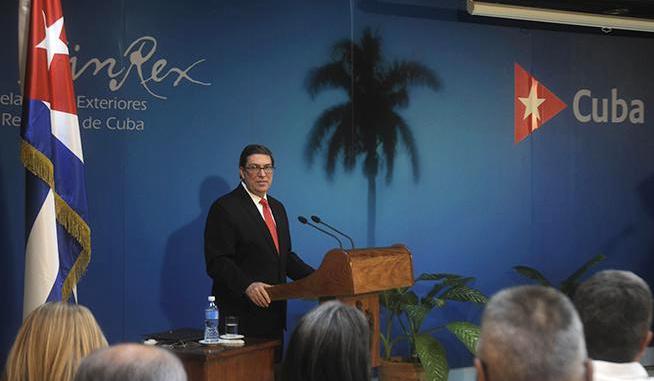
On October 24, Cuba's Minister of Foreign Affairs Bruno
Rodríguez held a press conference in Havana where he denounced
the U.S. government's latest attempt to undermine the broad and
overwhelming international support for Cuba's demand to end the
U.S. economic, financial and commercial blockade against it. He
referred to a document issued by the U.S. on October 23 that
proposes eight amendments to Cuba's draft resolution against the
blockade coming up for a vote at the UN General Assembly on
October 31.
Far from improving or refining the resolution, as
amendments
are intended to do, they serve to completely alter the spirit of
Cuba's draft resolution, Rodríguez said. The Cuban foreign
minister described them as "deeply hypocritical and shameless."
Among other things, the U.S. claims in its amendments to support
the very people it is blockading and trying to bring to their
knees through hunger and despair. The blockade is recognized as
an act of genocide under the Geneva Convention against the Crime
of Genocide, Rodríguez pointed out.
Already there is a long history of
manipulating the human rights issue against the Cuban Revolution he
pointed out. The attacks pertaining to the UN Development Agenda
contained in the U.S. "amendments" more than anything draw
attention to the lack of international benchmarks, as Cuba is one
of the few countries that has actually exceeded the Millennium
Development Goals and is in a good position to achieve those set
for 2030, he said.
"If the U.S. government wants to discuss the relation
of
human rights to sustainable development goals, we can do that,"
Rodríguez said. "Just say when and where. Then we could talk
about the discrimination faced by Blacks and Latinos in the U.S.;
or women doing the same work as men for less; the hundreds of
thousands of citizens prevented from participating in elections
because of debts they owe; or the wars launched by Washington and
its massacres of civilians."
Rodríguez dismissed the latest political
manoeuvre of the U.S.
as
nothing more than a mendacious ploy for propaganda purposes,
aimed at manipulating international and domestic public opinion
and justifying behaviour that has no support internationally or
within the U.S. He said this increasingly hostile policy is
linked to "the anti-Cuba industry" in Miami and aimed at creating
a climate of heightened bilateral tensions.
He noted that when it comes to human rights, the U.S.
has
signed only 18 of the 61 existing human rights covenants. It
would be interesting for the U.S. government to take part in a
debate at the UN regarding adherence to international human
rights instruments, he said, citing the glaring example that the
U.S. is the only country in the world to have voted against the
right to food.
Rodríguez then went through a number of the UN's
2030
Sustainable Development Goals one by one, giving examples of how
the U.S. is far from attaining any of them, and has even adopted
policies in direct violation of the goals.
He noted that what was even more striking is a
document
accompanying the October 23 press release, circulated
surreptitiously by Deputy Assistant Secretary of State Gonzalo
Gallego that seeks to persuade UN members to change their vote
on October 31.
In concluding, he indicated that Cuba would be
following
events closely in the days ahead and will contact the media once
again on October 31 "when the General Assembly is certain to
overwhelmingly and practically unanimously condemn the economic,
commercial and financial blockade imposed on the people of my
country by the U.S."

Effect of Blockade on Sports
- Alfonso Nacianceno, Granma -

"You cannot shake hands with a
clenched fist"
Imagine you invite a friend to your home to converse.
Imagine that this friend wants to reciprocate, but
something
always gets in the way, based on external interests, to ruin this
relationship.
Such a situation sparks various sentiments, none of
which are
pleasant, and leads one to question how such baseness can be put
above the enjoyment of friendship.
Despite the fact that the United States and Cuba didn't
reestablish diplomatic relations until July 20, 2015, the Cuban
Volleyball Federation (FCV) and its U.S. counterpart, USA
Volleyball, maintained ties, which they decided to expand in
2016, when the two entities signed a joint collaboration
agreement.
In this context, the U.S. men's national team came to
play in
Havana's Ciudad Deportiva, a step to be followed by the Cuban
squad visiting the U.S., but this was not possible. Various
actions followed that damaged sporting relations between the two
countries.
While Lory Okimura, chairperson of USA Volleyball, has
remained open to exchanges with Cuba, in September 2017, the
island's team was deprived of its right to compete in the North
America, Central America and the Caribbean (NORCECA) Continental
Men's Championship held in Colorado Springs, which offered the
possibility of qualifying for the 2018 International Volleyball
Federation (FIVB) Men's World Championship, held in
Italy and Bulgaria this past September.
Despite the FCV completing all required forms and
submitting
them to the U.S. Embassy in Havana with sufficient time to
process visas for the Cuban volleyball players, U.S. diplomatic
personnel informed that due to a lack of staff (after the
majority were withdrawn due to alleged "sonic attacks"), they
were unable to process the requests.
The precepts of the International Olympic Committee
(IOC)
require that any country that is host to an IOC recognized event
must guarantee the entry into its territory of all teams eligible
to participate. The NORCECA Continental Men's Championship was
such an event.
As the Cuban delegation was unable to obtain the
necessary
U.S. visas in Havana, they travelled to the Dominican Republic to
apply at the U.S. Embassy there instead.
That effort was also unsuccessful, and the players
returned
to Cuba having lost momentarily the chance to secure their ticket
to the World Championship.
Faced with this situation (Puerto Rico was also unable
to
compete in Colorado Springs due to the damage caused by
Hurricane Maria), Cuba was authorized to organize a Men's Final
Qualification Tournament in Pinar del Río, to decide the final
two places at the World Championship.
Cuba and Puerto Rico secured their tickets to the 2018
competitions in Pinar del Río, but hosting the final event cost
the island $58,000. Neither the pointless trip to the Dominican
Republic nor the hosting of this competition in Cuba would have
been necessary if the United States had honoured its obligation to
guarantee Cuba's participation in Colorado Springs.
In addition to this example of damages to the island in
the
field of competitive sports, Cuba has been unable to transfer
$73,000 worth of prizes awarded to its beach volleyball duo
Sergio González and Nivaldo Díaz; and payments to its
international referees Lourdes Pérez and Ricardo Borroto, to the
bank account of its volleyball federation because U.S. banks
refuse to carry out the transactions, FCV President Ariel Saínz
reported.
The trials and tribulations in the field of volleyball
are
just one example of damages that also occur in other sports. Such
obstacles, pressures on third countries not to interact with Cuba,
and prohibitions, cost the Cuban sports movement $80,859 in
damages between 2015 and 2016, which increased to $130,237 in the
same period a year later, and are calculated at $324,403 from
2017 to date.
The damages also extend to other related spheres, such
as the
impossibility of acquiring supplies for the National Anti-Doping
Program; and the refusal to provide teaching laboratories with
the essential aids and tools to guarantee quality education in
schools and teacher training.
In contrast to these attacks on Cuban sports, U.S.
teams have
always been warmly welcomed to the island by our people. To cite
just two examples: the visits by the Major League Baseball teams
the Baltimore Orioles in 1999; and more recently, the Tampa Bay
Rays in 2016.
Cuba remains open to dialogue and collaboration with
the
United States, based on respect for our dignity and sovereignty
and without conditions. However, real life examples, such as those
depicted
here bring to mind a phrase by former Prime Minister of India
Indira Gandhi: "You cannot shake hands with a clenched fist."
Examples of Blockade's Impact on Sports
- Cuban athletes are prevented from attending training
camps
and competitions in the United States. Instead, they must travel
to Europe or Asia, resulting in increased travel, lodging, and
facility rental costs.
- The Havana Anti-Doping Laboratory purchased gas
chromatography-mass spectrometry equipment for 157,000 euros.
This would have cost 34 per cent less in the U.S. market.
- U.S. brand cleats for National Baseball Series
players were
requested, which would have resulted in savings of more than
$10,000, if they had not been purchased through third
countries.
- Exchanges between Cuba and the United States in the
scientific and academic sphere of sports and physical activity
are hindered.
- In High Performance Sports, costs are between 40 and
50 per
cent higher to obtain the minimum necessary equipment. Boxing,
the pentathlon, sailing, field hockey, volleyball, archery, and track
and field, are the most harmed disciplines.
- Use of the Nexy credit line, granted to the National
Institute of Sports, Physical Education and Recreation (INDER)
for the acquisition of sporting goods from Japanese companies,
has been significantly limited, since the commercial
distributor for our geographical area is based in the United
States.
- As a result of the blockade and the policy of the
current
U.S. administration, there is a downward trend in the interest of
professional entities and franchises for sports exchanges with
Cuba.
- Cuba was unable to import goods from the United
States to
improve the infrastructure of our training centres for athletes
and coaches. This has resulted in the impossibility of obtaining
state-of-the-art technology, medicines, recovery and dietary
supplements, as well as specialized equipment and resources.
- The Brazilian Wrestling Federation has been unable to
transfer $52,535 to Cuba, due to the blockade restrictions on
bank transactions.
- Cuba was unable to purchase Hobie Cat
sailboats from Europe, due to the high costs.
Supplement
73rd Session of UN General Assembly
|
|

Centenary of End of World War I
British Imperialism and the First World War

To this day the conflict which led to World War I
continues to be presented as a noble and just cause. One of the
main arguments advanced at the time Britain declared war on
Germany was a duty to defend the right of self-determination of
small countries, Britain's stranglehold over Ireland
notwithstanding. To this day, official circles continue to assert
that the British government declared war in response to Germany's
invasion of Belgium and therefore "in defence of international
law and a small state faced with aggression." Some go even
further declaring that the government of the day acted to end
"warmongering and imperial aggression." No attempt is made to
look at the underlying causes of the war, which include the
"warmongering and imperial aggression" of all the big powers,
including Britain.
By 1900 the world had been almost completely
divided
between the big powers that had staked out colonial
territories and spheres of influence. Nevertheless, contention
continued with all the major powers seeking re-division of the
world in order to gain an advantage over their rivals.
For instance, Britain's "entente" with France was a
consequence of its evident international isolation following
earlier imperial aggression in South Africa. Britain's alliance
with France then led that government to threaten Germany with war
when the latter squabbled with France over which power should
invade and occupy Morocco. It is clear that in this case Britain
did not defend the sovereignty of a small state faced with
aggression. It was content to support France's aggression
against their common rival Germany, because France had agreed to
accept Britain's prior invasion and occupation of Egypt.
British imperialism chose to use Belgian "neutrality"
as a
justification for war against its rival Germany but did not seek
to prevent the aggression of the Belgian monarch, Leopold,
against the people of the Congo. In the 30 years preceding the
First World War, Belgian imperial aggression led to the deaths of
some 10 million Africans, probably half the Congolese population,
without any intervention by any of the big powers. This is not
surprising because all the major powers fought wars of aggression
and conquest not only in Africa and Asia but wherever their
predatory interests led them. In this regard, Britain was the
most aggressive and predatory of all the big powers at that
time.
 
Examples of the British Army's World War I recruitment posters.
The British government's warmongering and imperial
aggression
was also expressed in the rapid expansion of its navy and the
secret naval agreement with France in 1912, both of which were
directed against Germany. A new alliance with Russia in 1907,
which opened a new chapter in what was then known as the "great
game" of Anglo-Russian contention in Central Asia, was based on a
joint agreement that denied Afghanistan and Persia their
sovereignty and placed the resources of these countries at the
disposal of banks and monopolies of Russia and Britain. Such
alliances were clearly undertaken in the context of British
imperialism's predatory interests and in contention with Germany,
its main rival at the time.
The division and redivision of the world not only
precipitated war and created the conditions for the international
alliances that turned Europe into two camps of armed robbers.
Secret negotiations and treaties during the war sanctioned further
re-division. In 1915, the British
government reached a new secret agreement with Russia over the
division of Persia, that decided it would fall into
Britain's hands, while Russia was compensated with rights to
parts of the Ottoman Empire, including its capital
Constantinople; and Britain and France would acquire other Ottoman
territory. When Italy joined the Allied powers, the British
government entered into a secret treaty partitioning the
Austro-Hungarian Empire, allowing Italy to seize further
territory in Africa, including Libya and in the Horn of Africa,
thus violating the sovereignty of the Libyan, Somali and other
peoples in that continent. Secret plans were also made for the
dismemberment of Ethiopia. These secret agreements paved the
way for France to annex Syria and Lebanon, and Britain would take
what is today Iraq. The secret treaties paved the way for
the British government's Zionist occupation of Palestine, which
to this day denies the Palestinian people their right
to be.
The notion that the British government entered the
First
World War to uphold "civilized values" or for a "just cause" or
to defend the rights of small nations is a dangerous fiction that
has no basis in fact. It is disinformation advanced to deprive
the people of an outlook which is required to give rise to an
anti-war government today. The conditions for the First World War
grew out of the conditions of the imperialist system of states at
that time, not least the intense rivalry between the big powers
for markets, raw materials and spheres of influence, which they
sought to secure through a violent re-division of the world.
The 100th anniversary of the end of World War I is an
occasion to draw warranted conclusions from the experience of the
working class and people before, during and after the war.

Women's Historic Contribution Against the War
On the occasion of the centenary anniversary of the end
of
World War I, we pay tribute to the thousands of women, many of
them unsung heroes, who played a vital role in the fight for
peace in World War I. Women, who were not
conscripted to military service at that time, played a crucial
role in the anti-war movement. This is an
account of the bravery of the women of conscience from many
countries, including Canada, who organized the Women's
International Congress for peace in 1915 in the Hague, leading to
the formation of the Women's International League for Peace and
Freedom which has continued to work for peace for 100 years.
Others created the Women's Peace Crusade in 1916 in Glasgow which
spread throughout the country. Women were involved in the
creation of the Fellowship of Reconciliation, and in running the
work of the Friends (Quaker) Service Committee. Many drew on
their experience in the pre-war struggle for the right of women
to vote. They risked imprisonment for their anti-war work, and
some did serve prison terms for defying censorship, for
publishing the Tribunal newspaper, and for speaking about
peace. Women also stood second to none in the overthrow of the
tzarist regime in Russia which brought in the first worker's
socialist state in 1917.
The Women's International Congress at the Hague --
April
1915

Women's Peace Congress in the Hague, April 1915.
In April 1915, about 1,200 women from the warring
countries
gathered in The Hague, for the Women's International
Congress. The overwhelming majority were from the Netherlands, but
despite travel restrictions, others came from Austria, Belgium,
Britain, Canada, Denmark, Germany, Hungary, Italy, Norway, Sweden and
the United States. French and
Russian women were not allowed to attend. One hundred and eighty
British women applied to go but the government, after refusing at first
to allow
passports, eventually agreed to issue 24 to women chosen by the
Home Secretary. The Admiralty then closed the North Sea to
shipping! The only British women able to attend were Chrystal
Macmillan and Kathleen Courtney who had already travelled to the
Hague to help organize the Congress, and Emmeline Pethick-Lawrence who
arrived there from a speaking tour in the U.S. Those who made the trip
from the U.S. risked their lives sailing the Atlantic in a ship
that was unable to fly the U.S. flag and could have been
torpedoed. Five Belgian delegates arrived to great applause
having surprisingly secured permits from the occupying German
authorities. Messages of support came from as far away as India,
Brazil and South Africa.
The British press treated this with the usual contempt.
The Evening Standard
said "Women peace fanatics are
becoming a nuisance and a bore" and dismissed their efforts as
amateurish, and they were mocked by the Daily Express as "peacettes."
Generally the press was disappointed the
women did not come to blows.

Newspaper photograph of Women's Peace Congress head table.
To hold the conference at all during the war was a
remarkable
feat of organization and bravery. It was the first international
meeting to draw up an outline of the principles needed for a
peace settlement to succeed. The Covenant of the League of
Nations after the war is remarkably similar to the 20 resolutions
passed by the delegates. They included democratic control of
foreign policy, with no secret treaties, universal disarmament,
future international disputes to be referred to arbitration -- and of
course, equal political rights for women, and the
involvement of ordinary men and women in the final peace
conference.
The delegates held a minute's silence for all those
killed in
the war to that time. Rosika Schwimmer described the mood: "we had one
who learned that her son had been killed -- and women who had learned
two days earlier that their
husbands had been killed, and women who had come from belligerent
countries full of the unspeakable horror, of the physical horror
of war, these women sat there with their anguish and sorrows,
quiet, superb, poised, and with only one thought, 'What can we do
to save the others from similar sorrow?'"
Rosika suggested that the resolutions passed by the
Congress
should be taken in person to the heads of the belligerent and
neutral governments and to the President of the United States.
Many thought the idea impractical and impossible, but she
persuaded them. Between May and August 1915 thirteen of the
women, in two groups, (including Chrystal Macmillan from Britain)
visited senior statesmen in fourteen capitals: Berlin, Berne,
Budapest, Christiana (now Oslo), Copenhagen, The Hague, Le Havre
(seat of the deposed Belgian government), London, Paris,
Petrograd (now St. Petersburg), Rome, Stockholm, Vienna and
Washington. Women from the fighting countries were chosen to
visit the neutral governments, and vice versa. They wanted the
neutral countries to set up a mediating conference. In Britain,
Catherine Marshall arranged meetings with the Foreign Secretary
and the Prime Minister. Everywhere they found all the governments
had convinced themselves they were fighting "in
self-defence" and were waiting for the neutral countries to
intervene. In Austria, Jane Addams (American chair of the
Congress) said to the Prime Minister, "It perhaps seems
to you very foolish that women should go about in this way; but
after all, the world itself is so strange in this war situation
that our mission may be no more strange or foolish than the
rest." He replied "Foolish? These are the first sensible
words that have been uttered in this room for ten months."
Rosika ultimately returned to Hungary, then
after
the war was forced to flee to the U.S. where she was unfairly
accused of being a German spy and denied U.S. citizenship
because she "refused to bear arms," and died stateless in
1948.

PREVIOUS
ISSUES | HOME
Website: www.cpcml.ca
Email: editor@cpcml.ca
|

 President Díaz-Canel thanked
UN member states on behalf of
the Cuban people for their "virtually unanimous" rejection of the
blockade. He pointed out that the U.S. government's hostile
actions also include covert programs of gross interference in
Cuba's internal affairs, with tens of millions of dollars
officially allocated for this purpose, in violation of Cuba's
sovereignty as well as the standards and principles on which the
UN is based.
President Díaz-Canel thanked
UN member states on behalf of
the Cuban people for their "virtually unanimous" rejection of the
blockade. He pointed out that the U.S. government's hostile
actions also include covert programs of gross interference in
Cuba's internal affairs, with tens of millions of dollars
officially allocated for this purpose, in violation of Cuba's
sovereignty as well as the standards and principles on which the
UN is based. "The country will not go
back to the opprobrious past that it
shook off with the greatest sacrifices during 150 years of
struggle for independence and full dignity. By the decision of
the overwhelming majority of Cubans, we shall continue the work
that started almost 60 years ago."
"The country will not go
back to the opprobrious past that it
shook off with the greatest sacrifices during 150 years of
struggle for independence and full dignity. By the decision of
the overwhelming majority of Cubans, we shall continue the work
that started almost 60 years ago."

 Wherever Cuban President
Miguel Díaz-Canel went
in New
York City during his week-long visit from September 23-30, he was
met with militant enthusiastic support for Cuba. His itinerary
included an address to the UN General Assembly and a presentation
at the UN Nelson Mandela Summit for Peace. On Cuba's behalf he
met with various heads of state at the UN, with religious
leaders, industry and agricultural executives, with Cubans
residing in the U.S. as well as U.S. cultural personalities and
artists. He also paid a visit to Ground Zero to honour the
victims of the 9/11 attack.
Wherever Cuban President
Miguel Díaz-Canel went
in New
York City during his week-long visit from September 23-30, he was
met with militant enthusiastic support for Cuba. His itinerary
included an address to the UN General Assembly and a presentation
at the UN Nelson Mandela Summit for Peace. On Cuba's behalf he
met with various heads of state at the UN, with religious
leaders, industry and agricultural executives, with Cubans
residing in the U.S. as well as U.S. cultural personalities and
artists. He also paid a visit to Ground Zero to honour the
victims of the 9/11 attack.











 The LNG Canada project is a
matter of concern to working
people in Canada. It brings to the fore the need to humanize the
social and natural environment and raises serious questions about
the exploitation of Canada's natural resources: Whose resources?
Whose economy? Who decides? Who controls the process? Who
benefits? The answer is not the working people in Canada. This is
clear from the Canadian government's backing and funding of
projects such as this, the Trans Mountain Expansion and others.
They act regardless of the people's objections, notably those of
the Indigenous nations, whose right to be consulted and give
their consent in these matters is usually trampled on. In the
case of fracking in BC, the matter is of profound concern to all
BC residents in an earthquake prone zone. This situation
underscores the urgent need to humanize the social and natural
environment. Working people should reject this humiliation and
victimization by governments that serve supranational interests,
at the expense of the people and the natural environment.
Providing information on these matters and what is at stake so
that people can draw warranted conclusions is very important at
this time when matters are rapidly spiralling out of anyone's
control.
The LNG Canada project is a
matter of concern to working
people in Canada. It brings to the fore the need to humanize the
social and natural environment and raises serious questions about
the exploitation of Canada's natural resources: Whose resources?
Whose economy? Who decides? Who controls the process? Who
benefits? The answer is not the working people in Canada. This is
clear from the Canadian government's backing and funding of
projects such as this, the Trans Mountain Expansion and others.
They act regardless of the people's objections, notably those of
the Indigenous nations, whose right to be consulted and give
their consent in these matters is usually trampled on. In the
case of fracking in BC, the matter is of profound concern to all
BC residents in an earthquake prone zone. This situation
underscores the urgent need to humanize the social and natural
environment. Working people should reject this humiliation and
victimization by governments that serve supranational interests,
at the expense of the people and the natural environment.
Providing information on these matters and what is at stake so
that people can draw warranted conclusions is very important at
this time when matters are rapidly spiralling out of anyone's
control.

 The NDP and Green Party's
Confidence and Supply Agreement,
which allowed the Horgan-led NDP to seize governmental power from
the Liberal Party in BC, pledges to draft a climate plan to
reduce greenhouse gases (GHGs) by 40 per cent by 2030 and 80 per
cent by 2050. GHGs are defined as: "Any of various gaseous
compounds (such as carbon dioxide or methane) that absorb
infrared radiation, trap heat in the atmosphere, and contribute
to the greenhouse effect."[
The NDP and Green Party's
Confidence and Supply Agreement,
which allowed the Horgan-led NDP to seize governmental power from
the Liberal Party in BC, pledges to draft a climate plan to
reduce greenhouse gases (GHGs) by 40 per cent by 2030 and 80 per
cent by 2050. GHGs are defined as: "Any of various gaseous
compounds (such as carbon dioxide or methane) that absorb
infrared radiation, trap heat in the atmosphere, and contribute
to the greenhouse effect."[ To address the problem that with the 3.45
million tonnes of
GHG emissions when the LNG project is fully operational, the gap
to be closed by 2030 to meet the current BC government plan will
grow to 23.9 million tonnes, the government now says that when
the new Site C dam and its related hydroelectric power project
"goes on line in 2024, it will provide clean power for some of
the electrification in the clean growth strategy." In plain
English, Site C will offset the increased GHG emissions from the
extraction and sale of large quantities of natural gas.
To address the problem that with the 3.45
million tonnes of
GHG emissions when the LNG project is fully operational, the gap
to be closed by 2030 to meet the current BC government plan will
grow to 23.9 million tonnes, the government now says that when
the new Site C dam and its related hydroelectric power project
"goes on line in 2024, it will provide clean power for some of
the electrification in the clean growth strategy." In plain
English, Site C will offset the increased GHG emissions from the
extraction and sale of large quantities of natural gas.













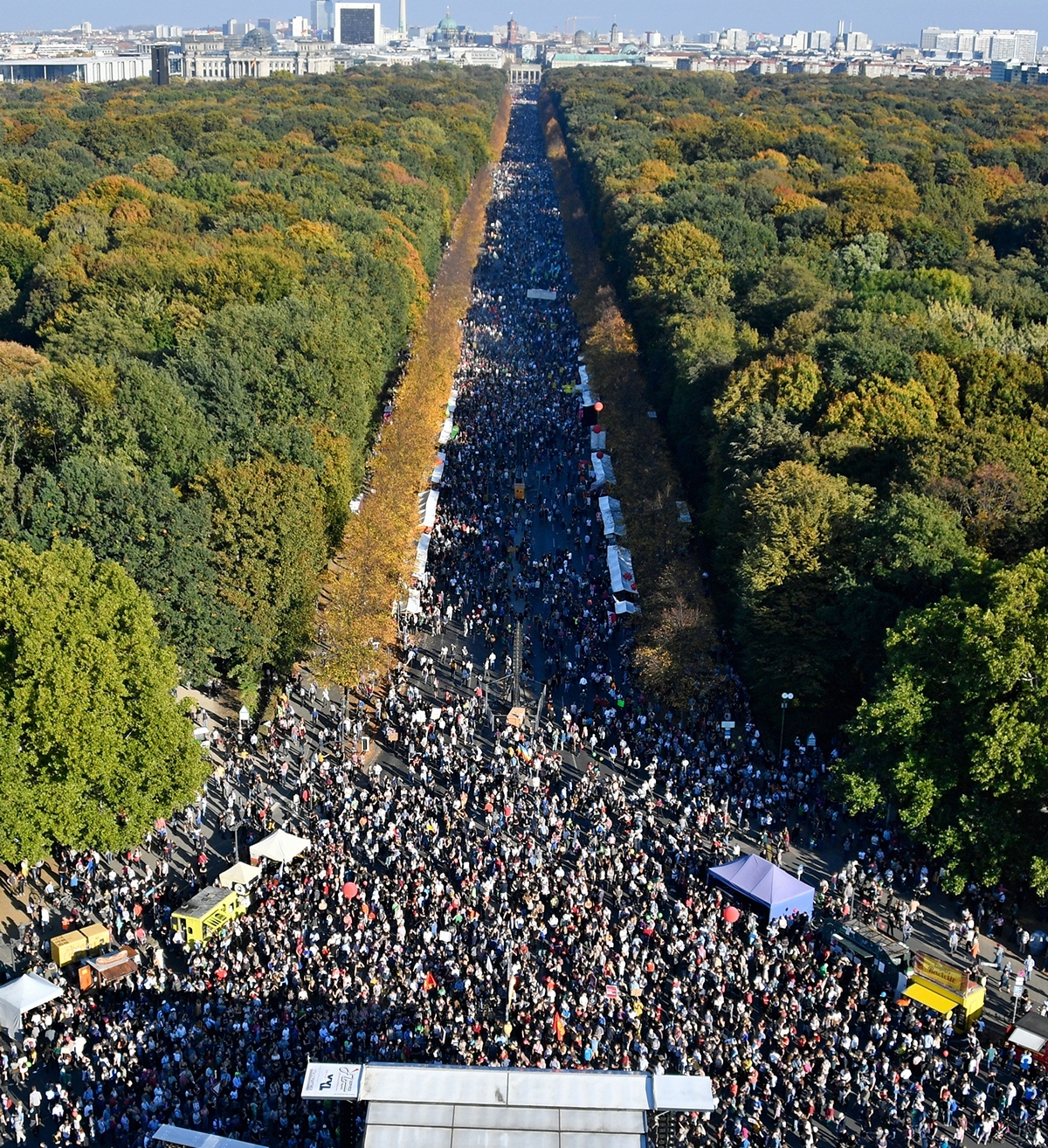


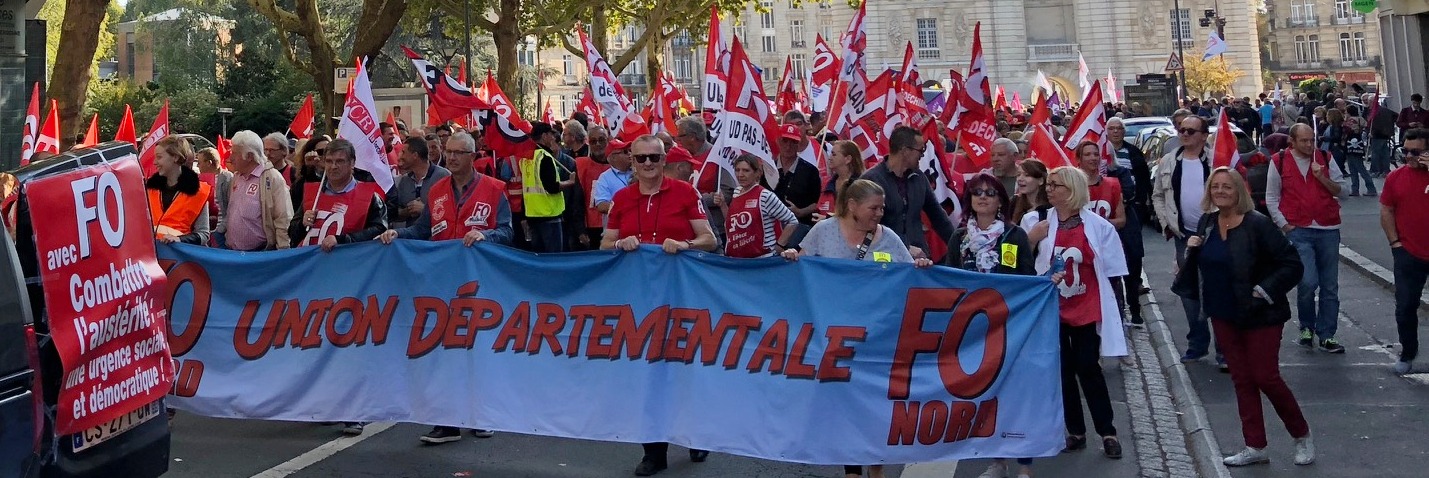
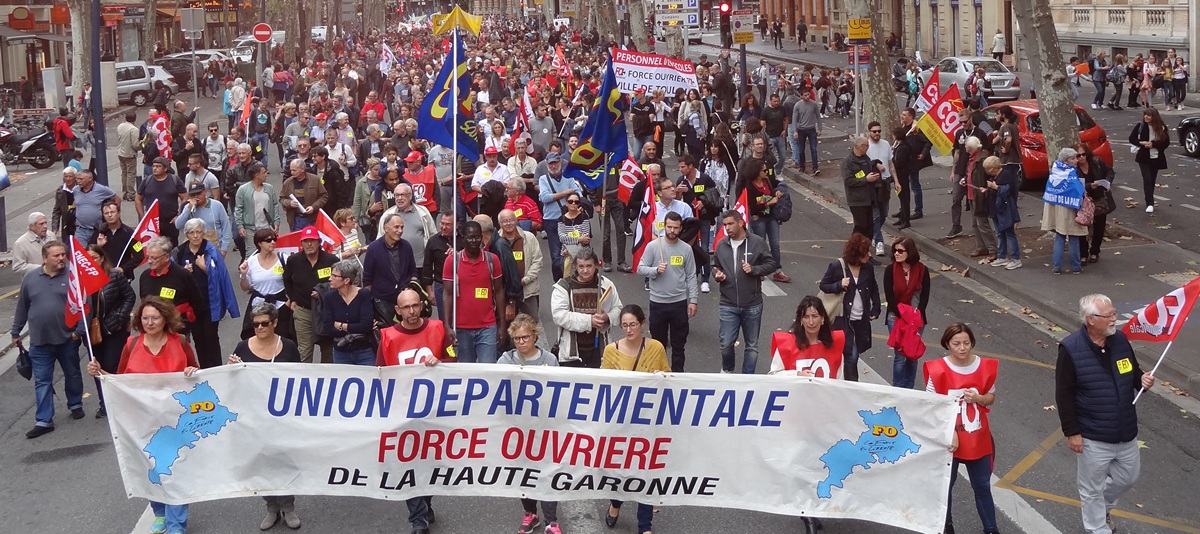
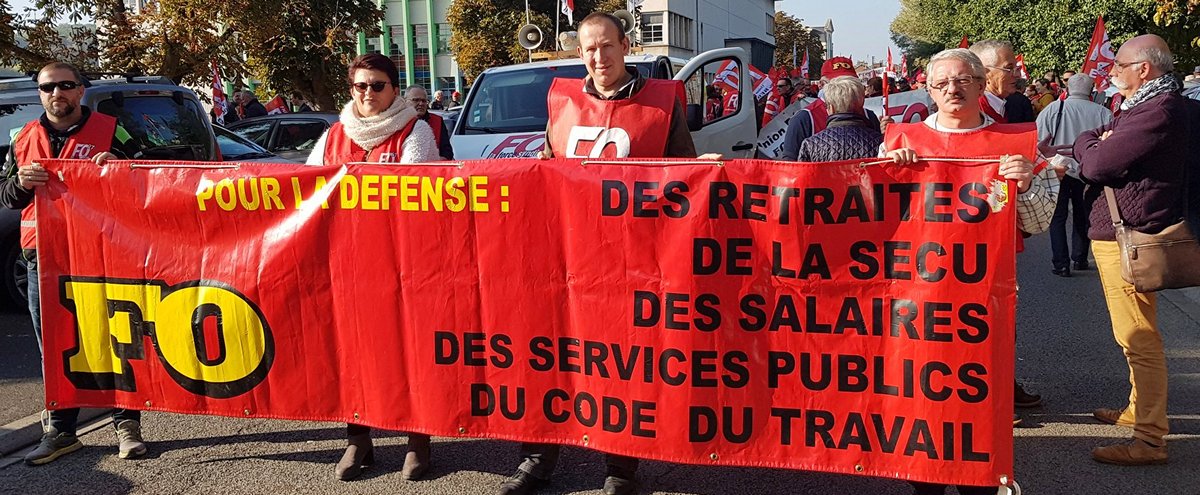

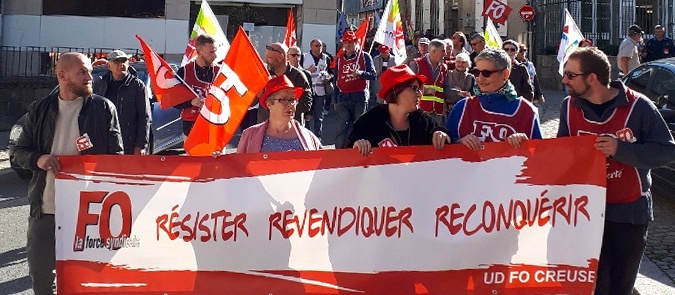 Gueret
Gueret 